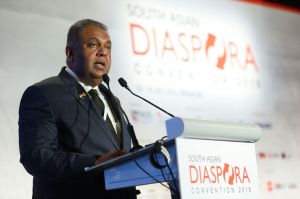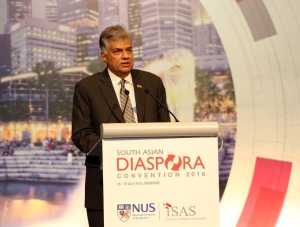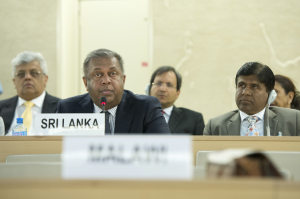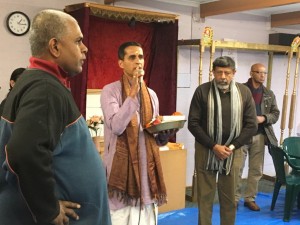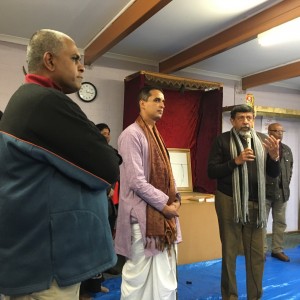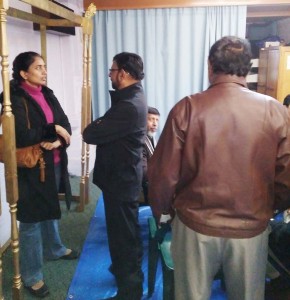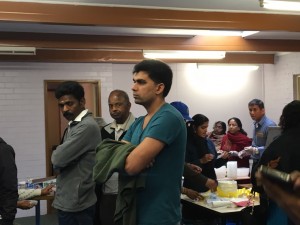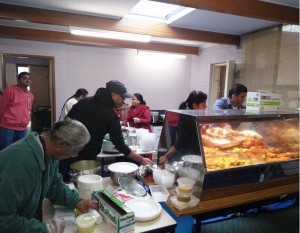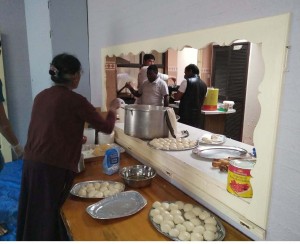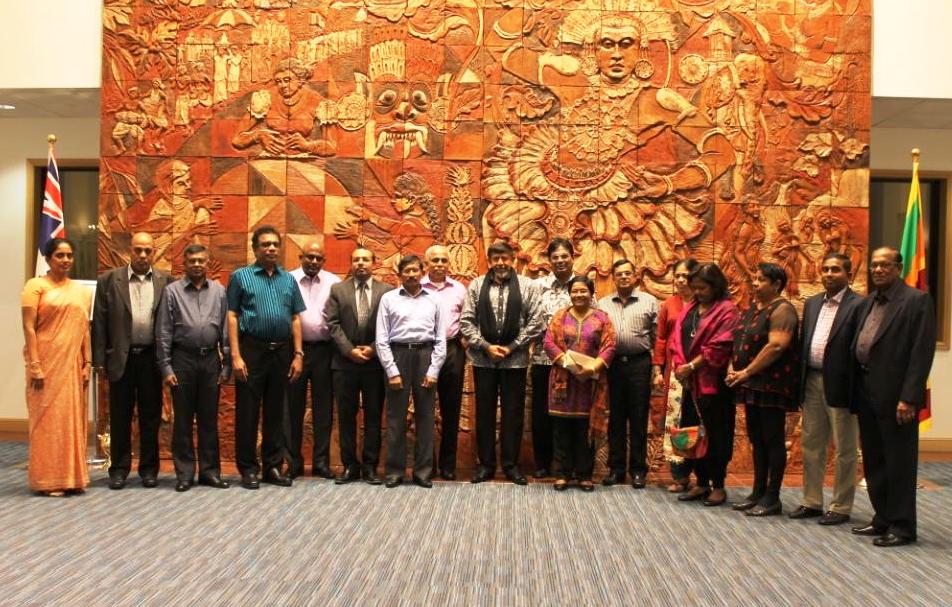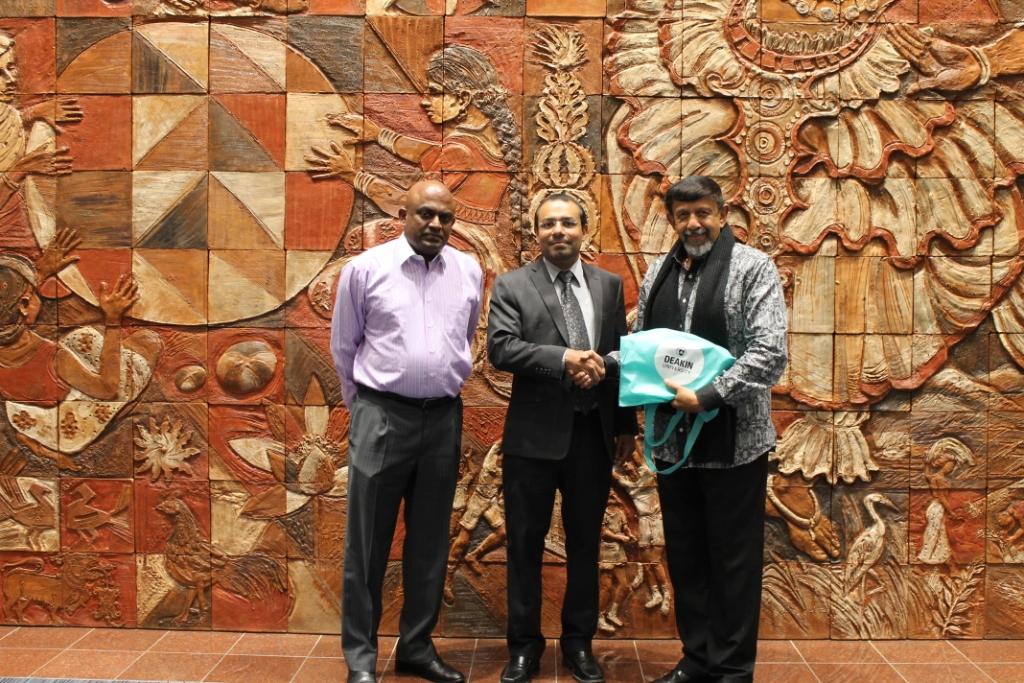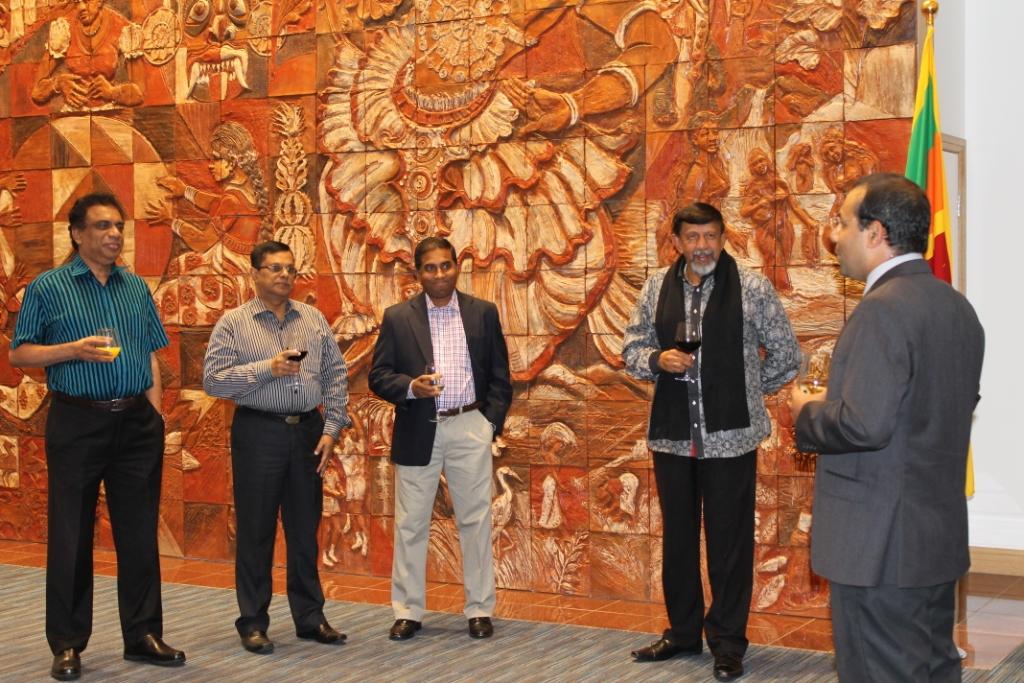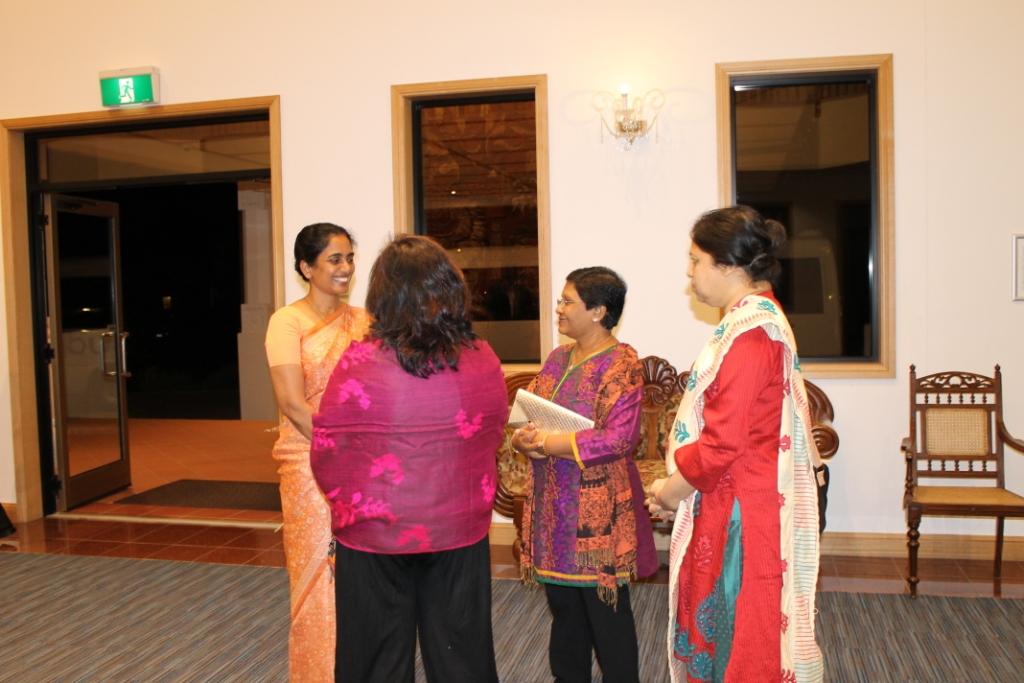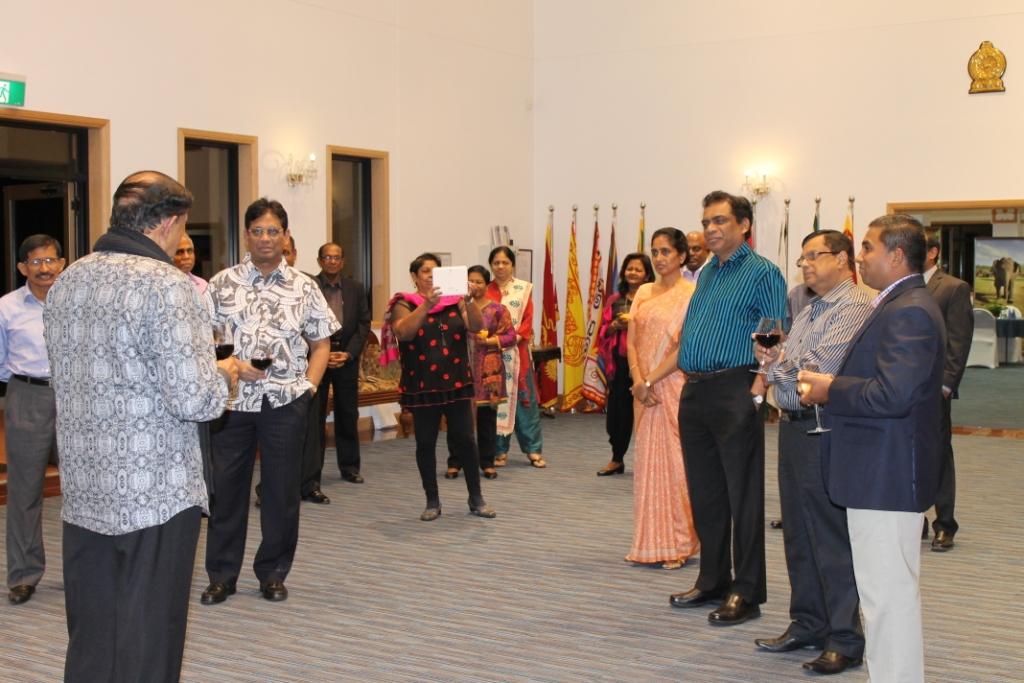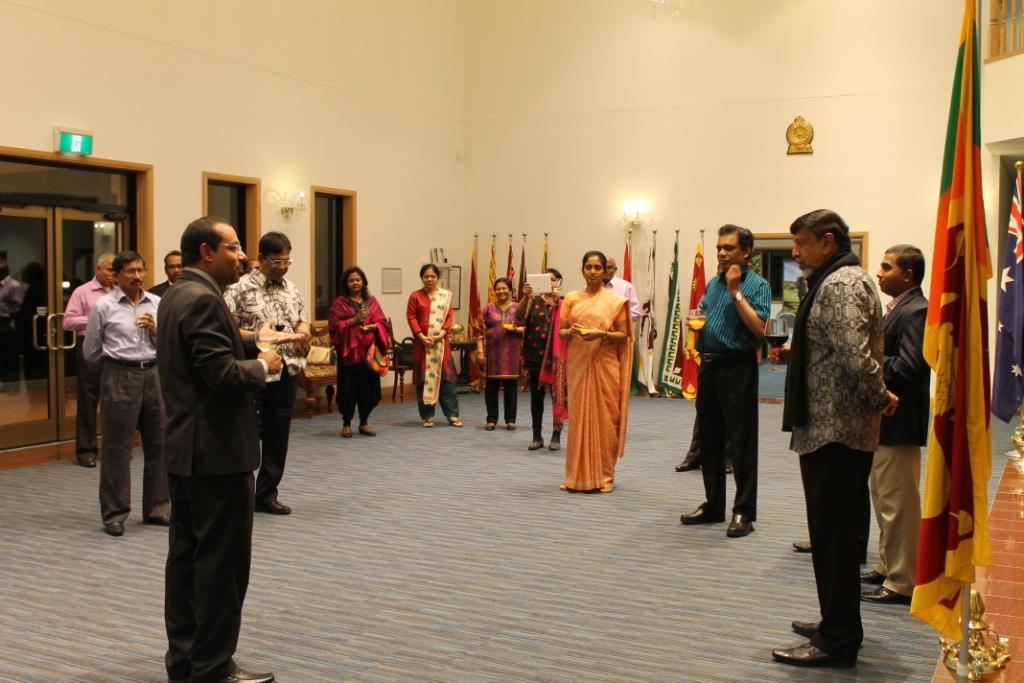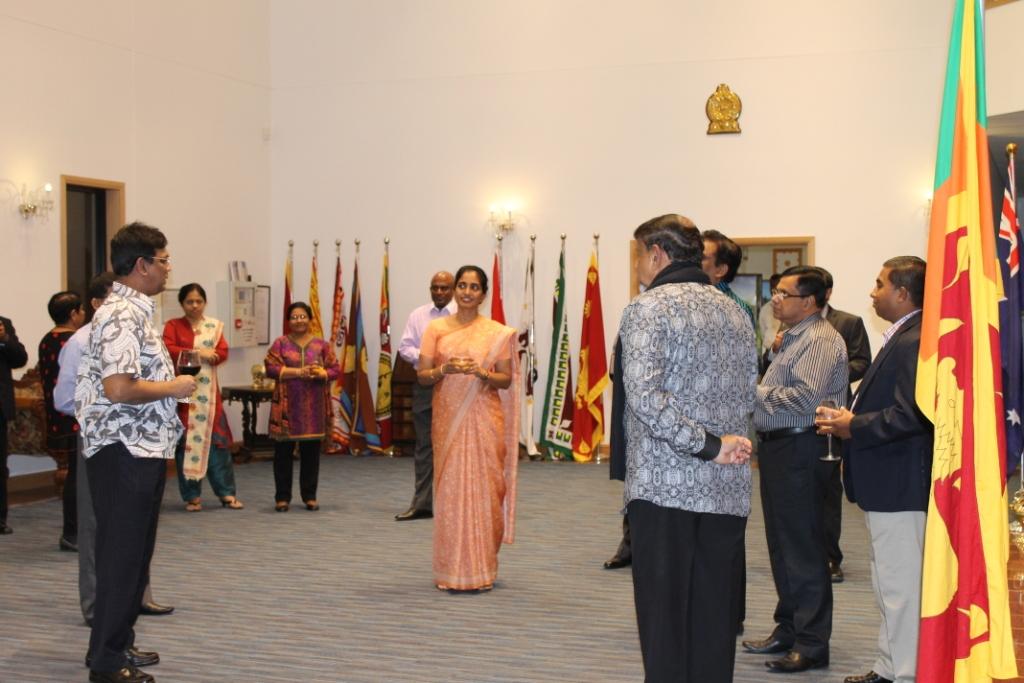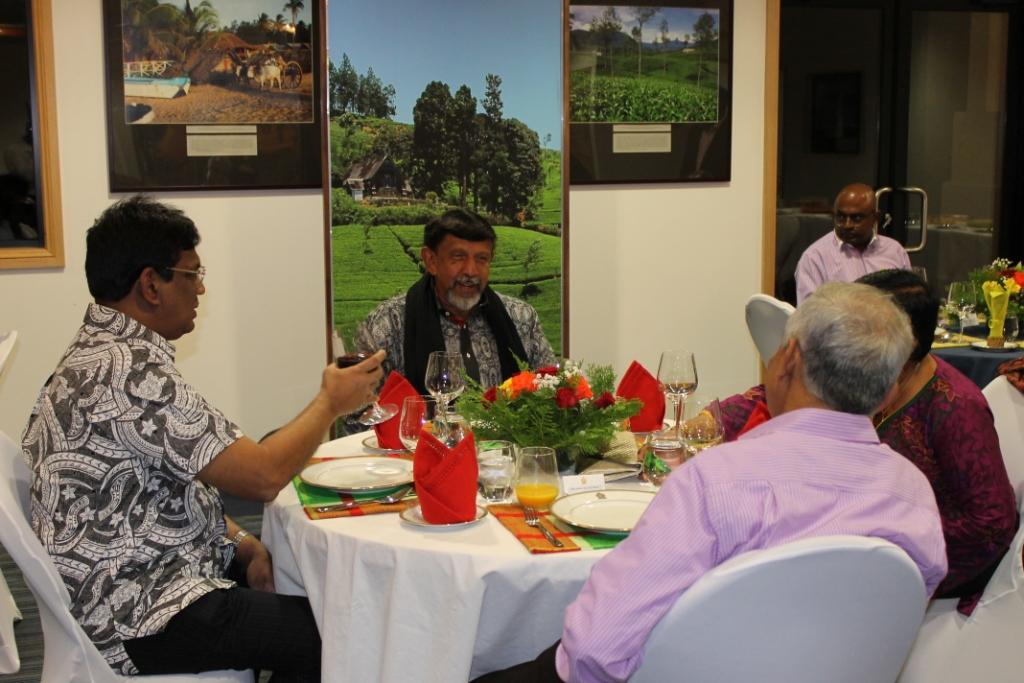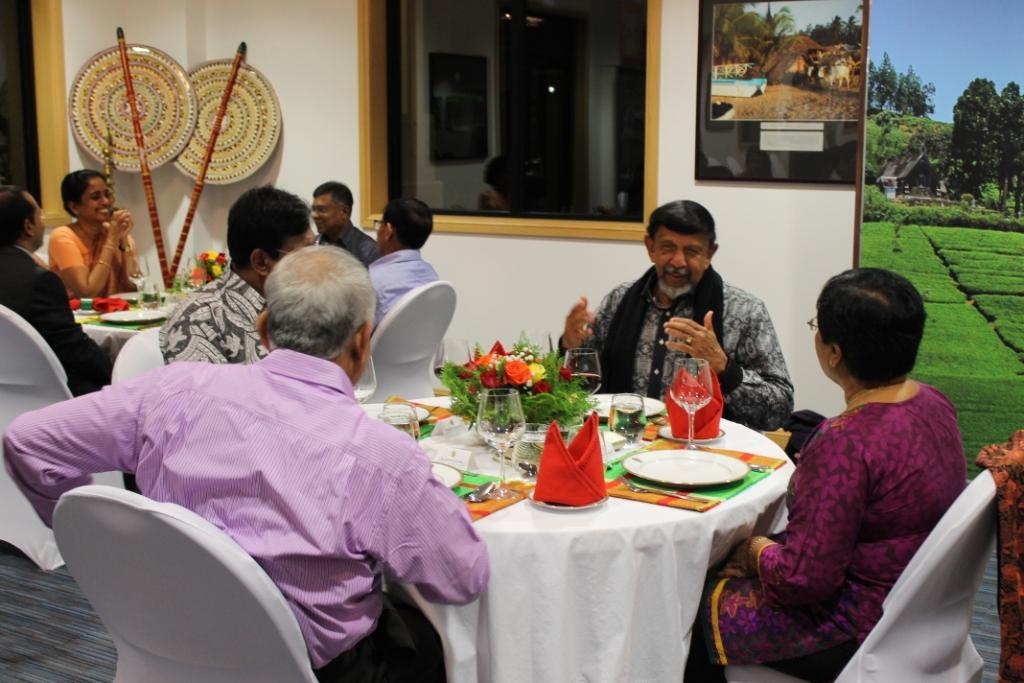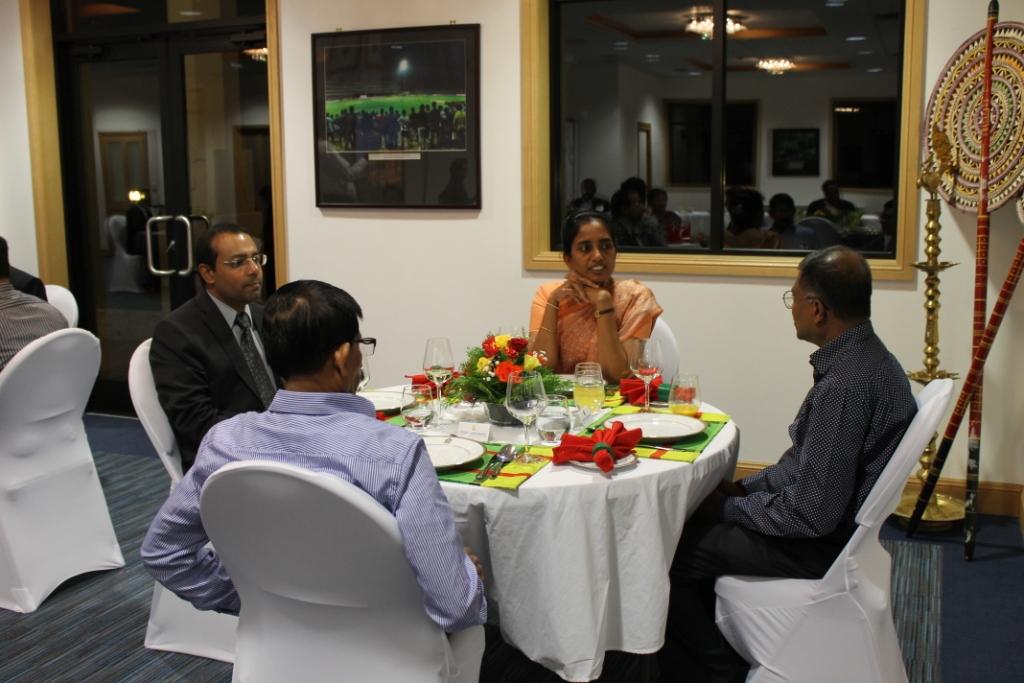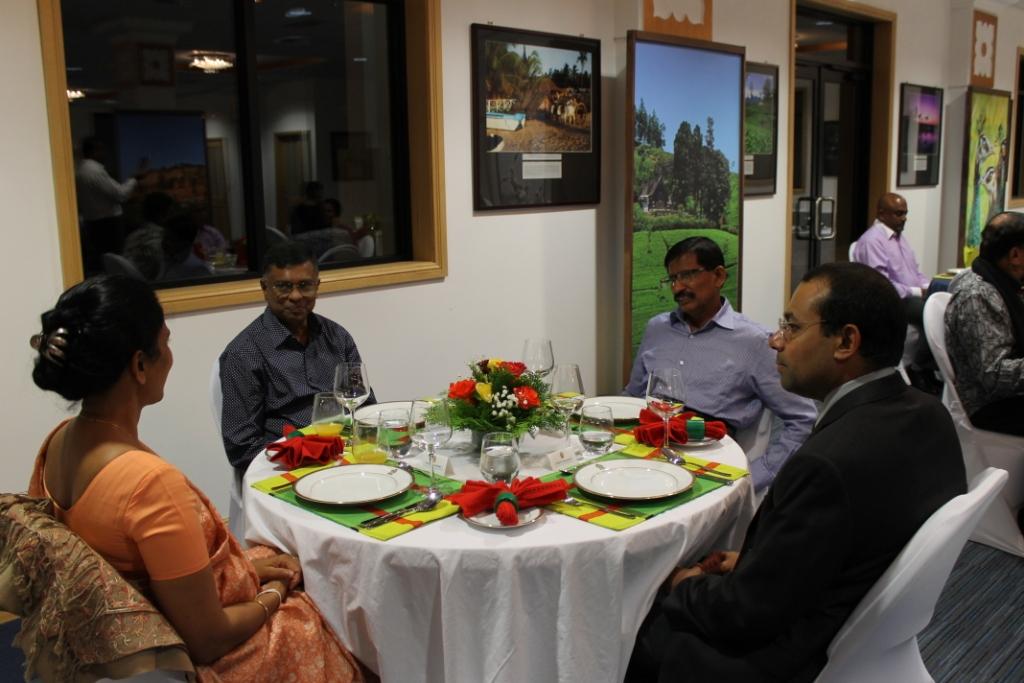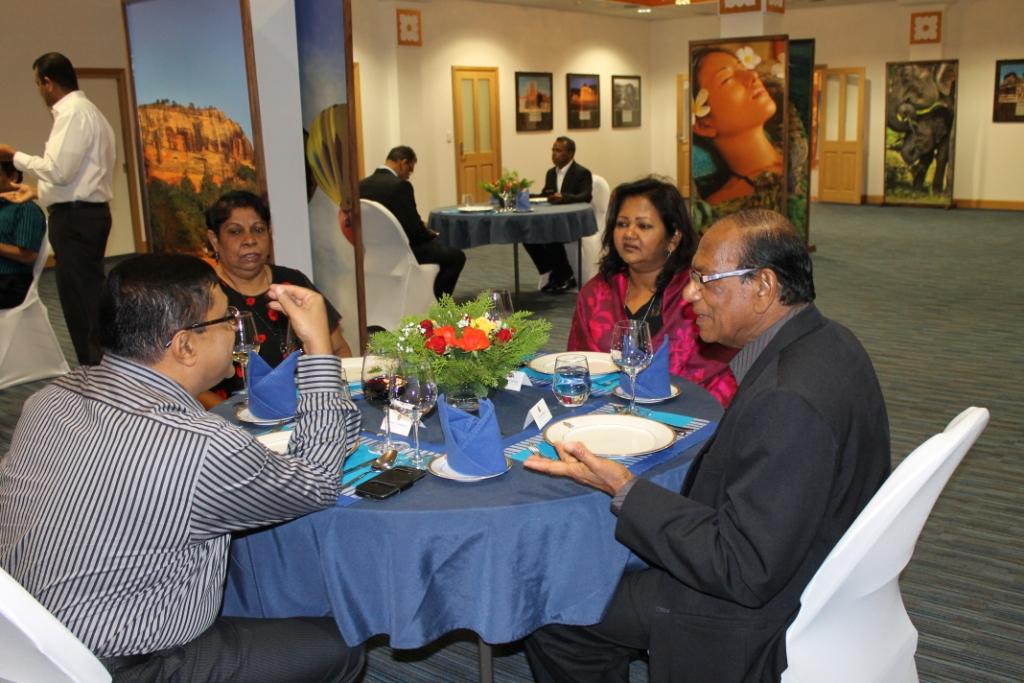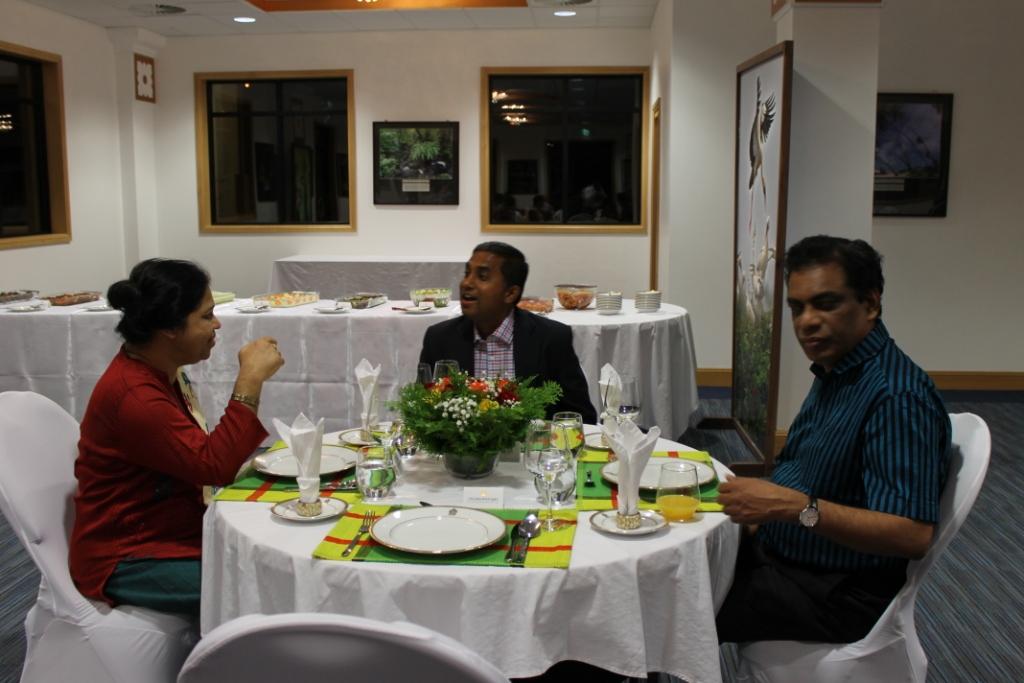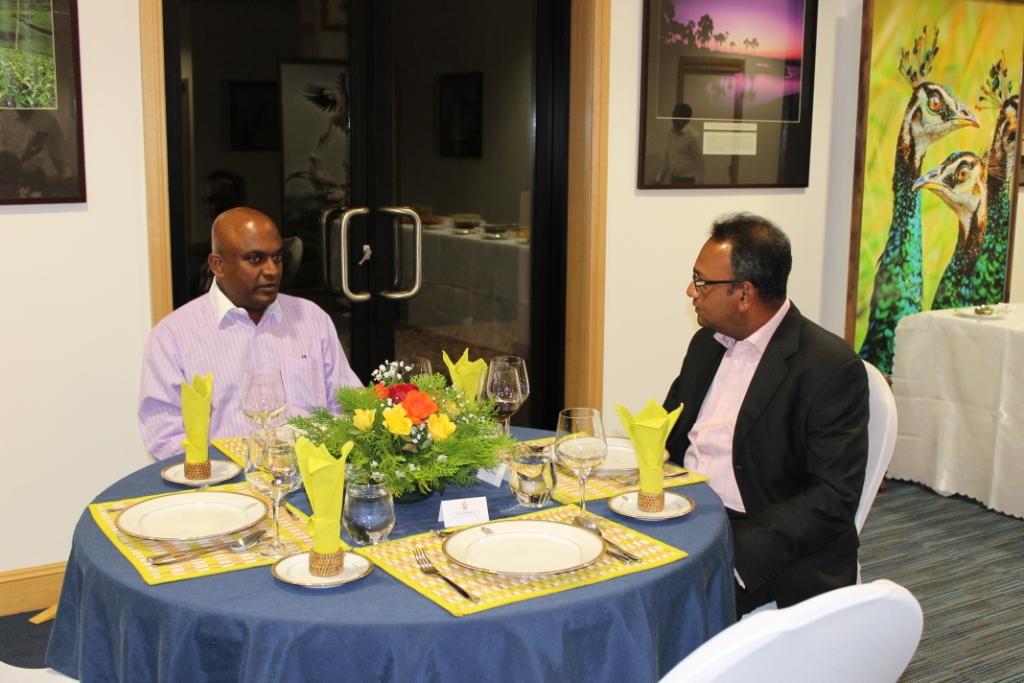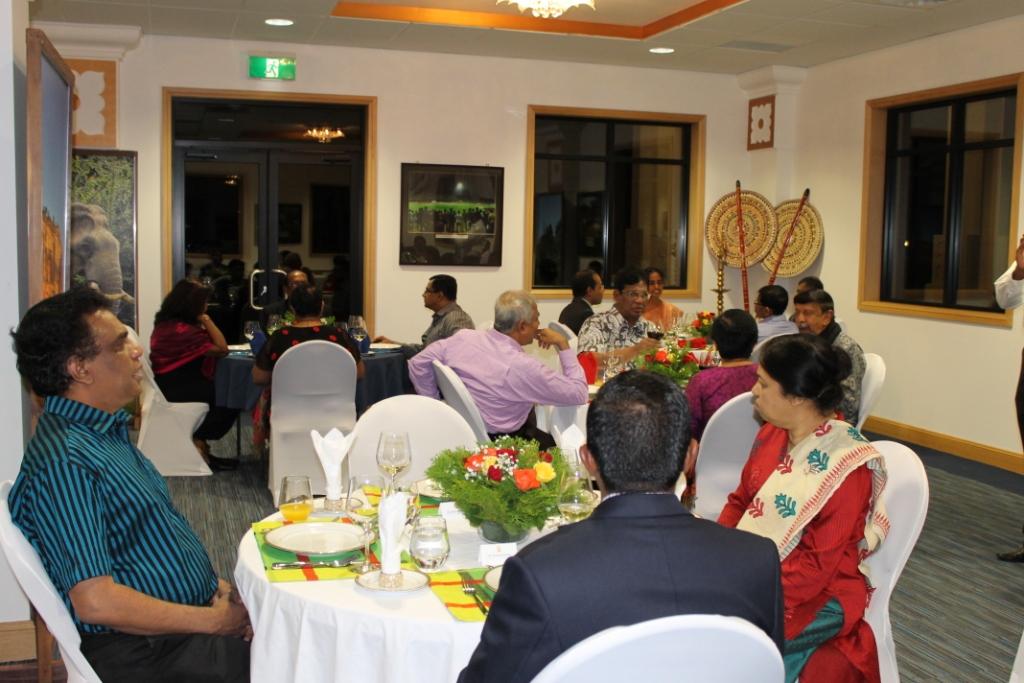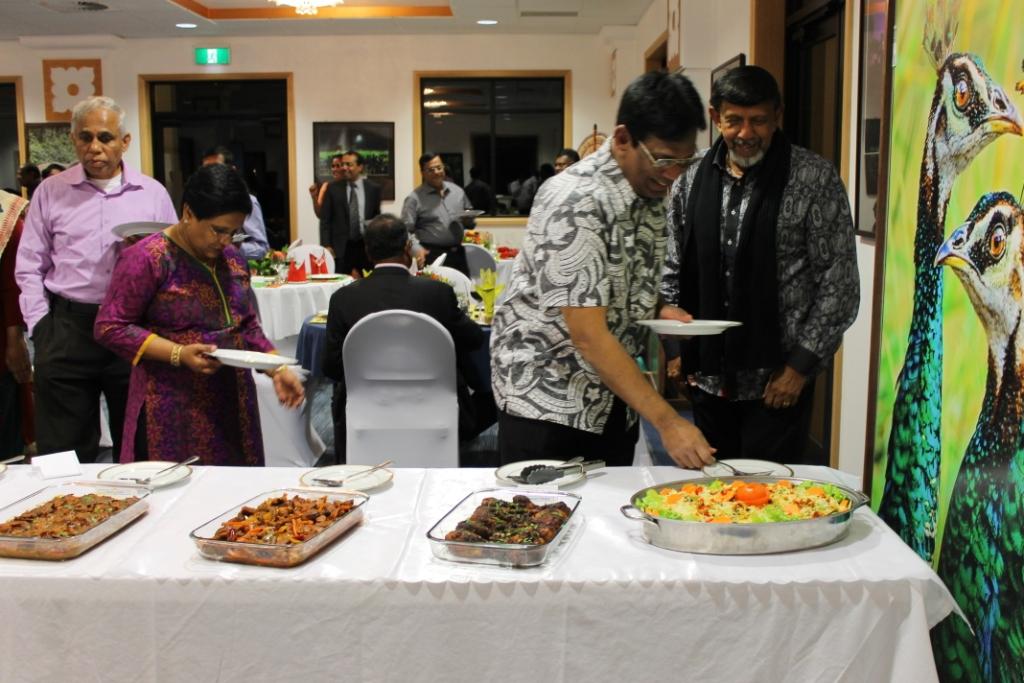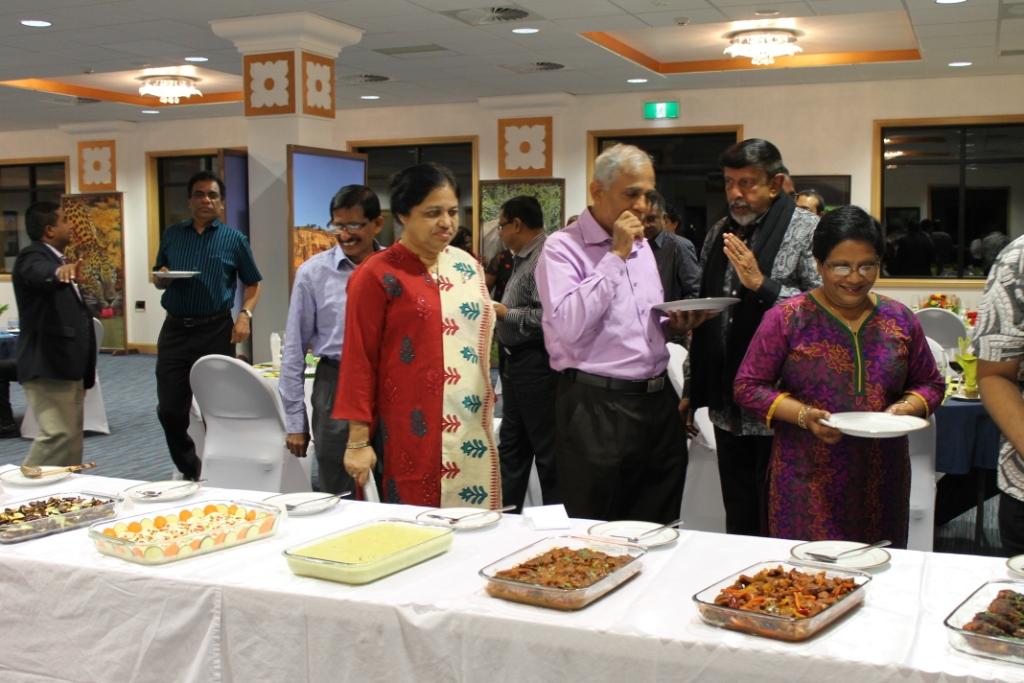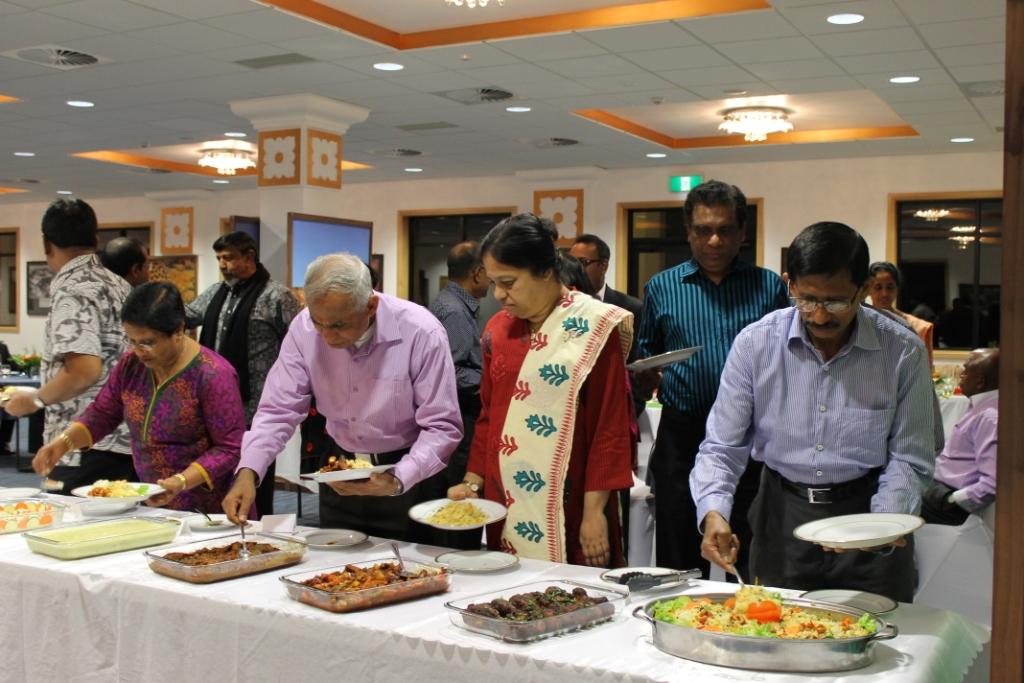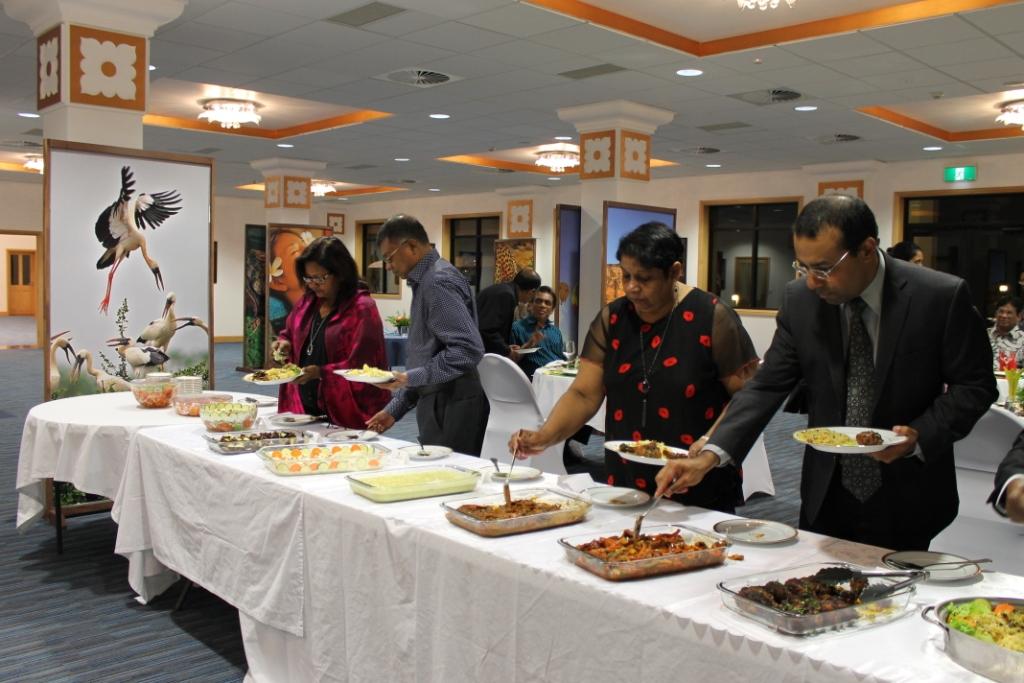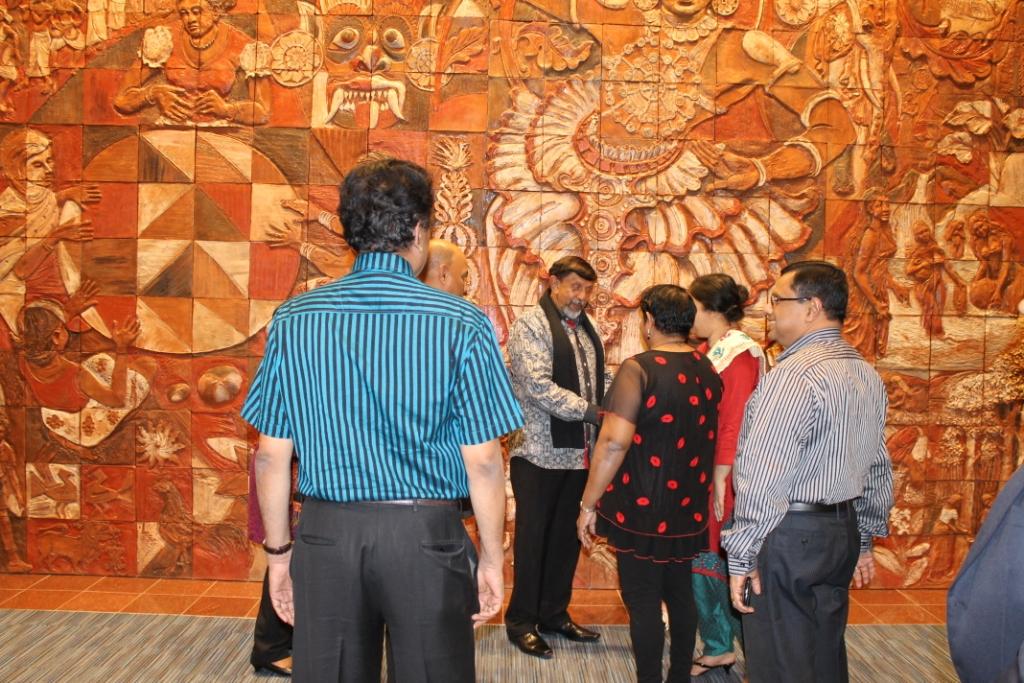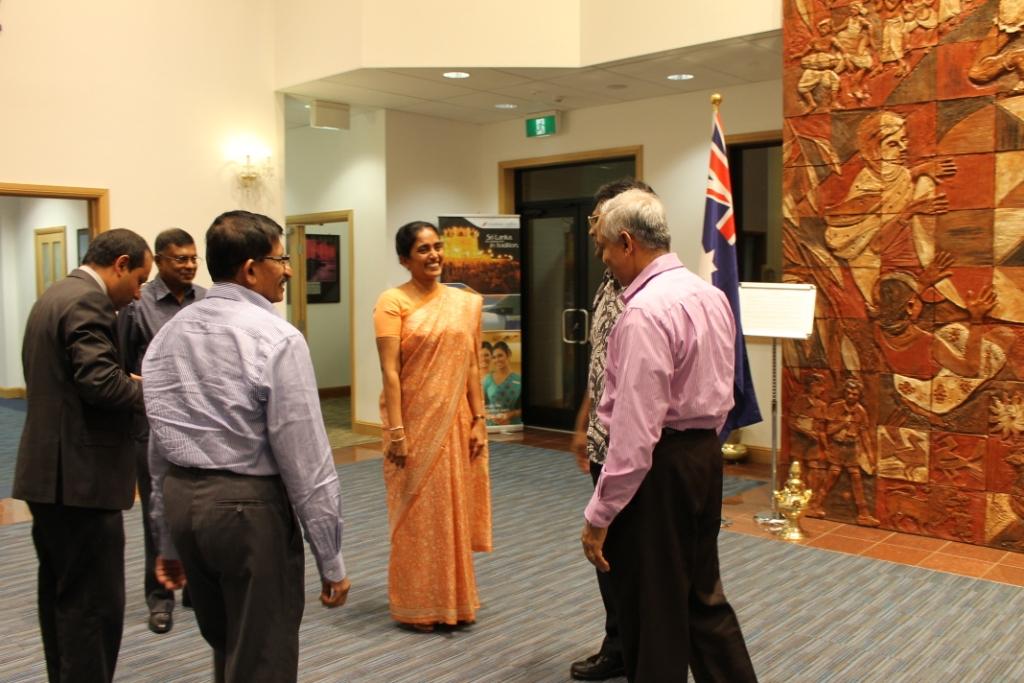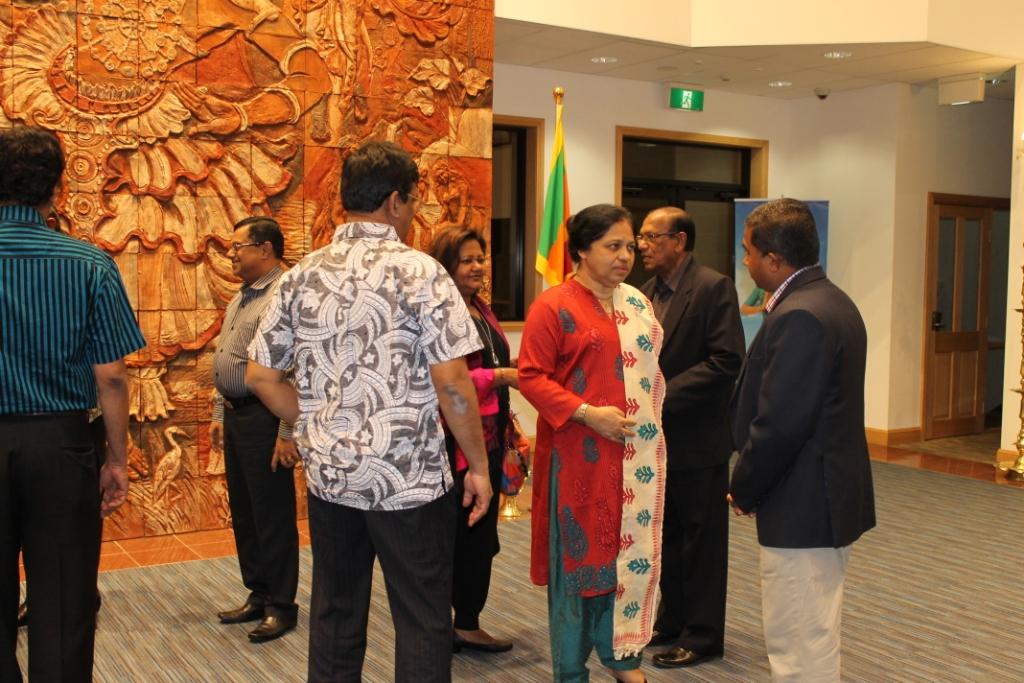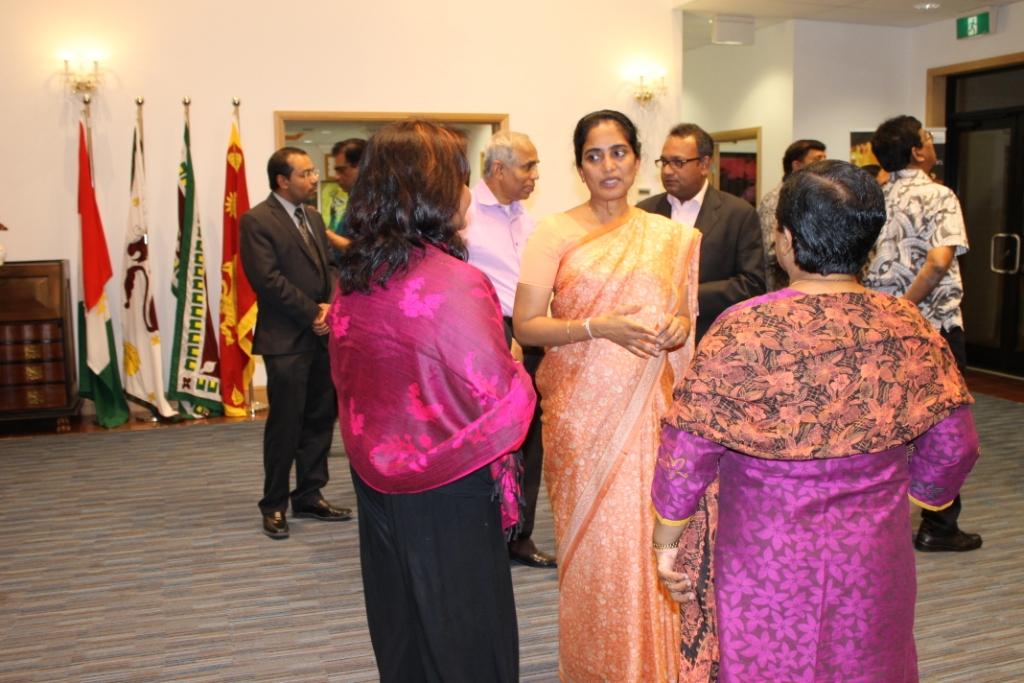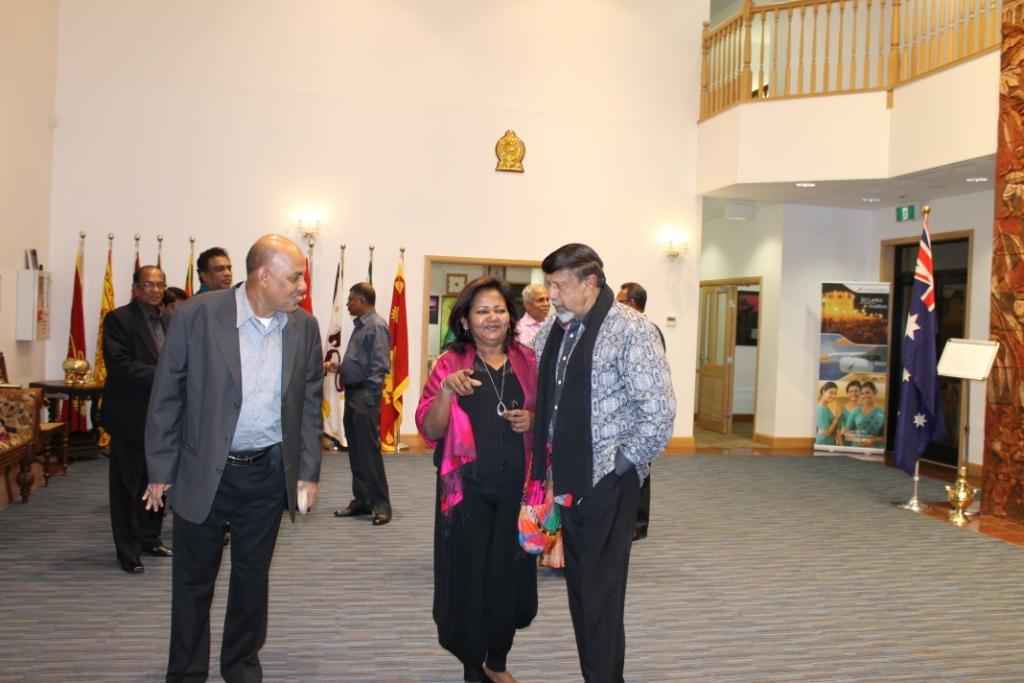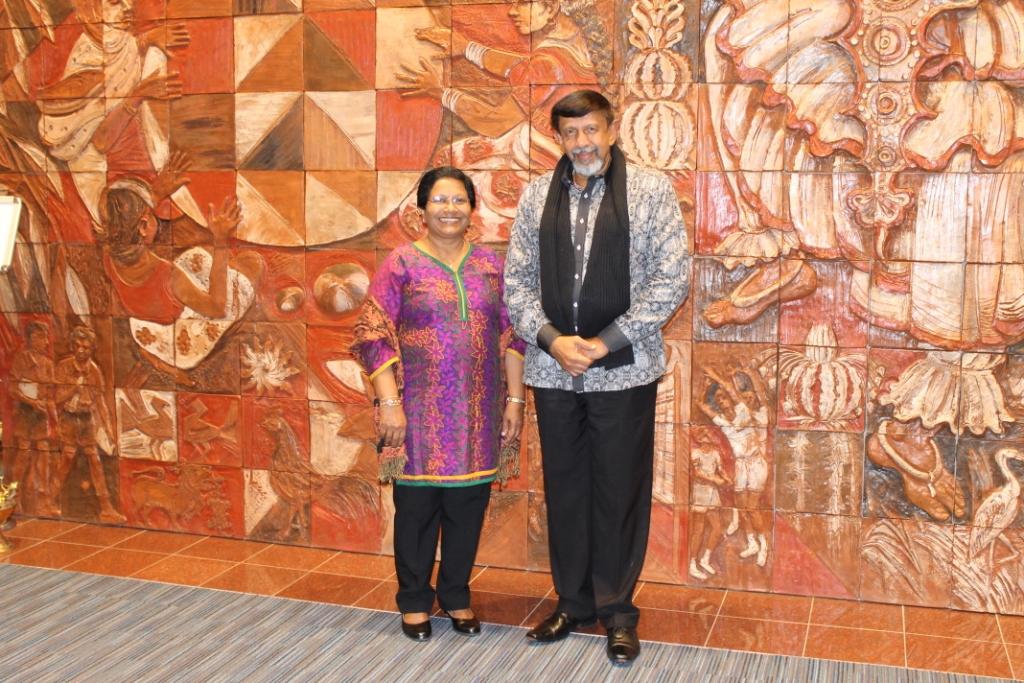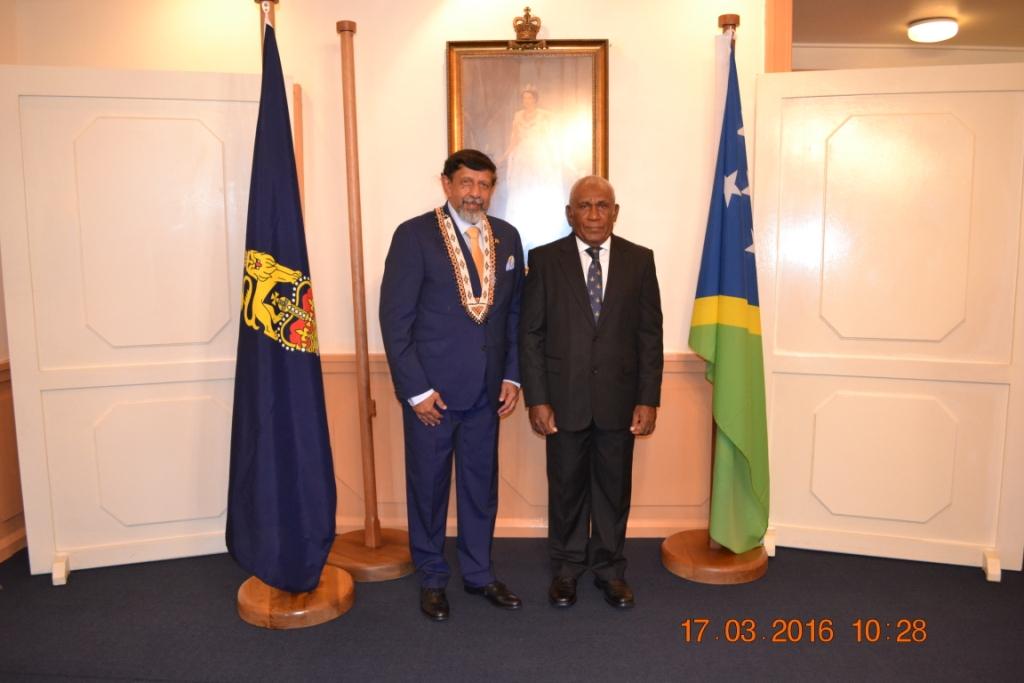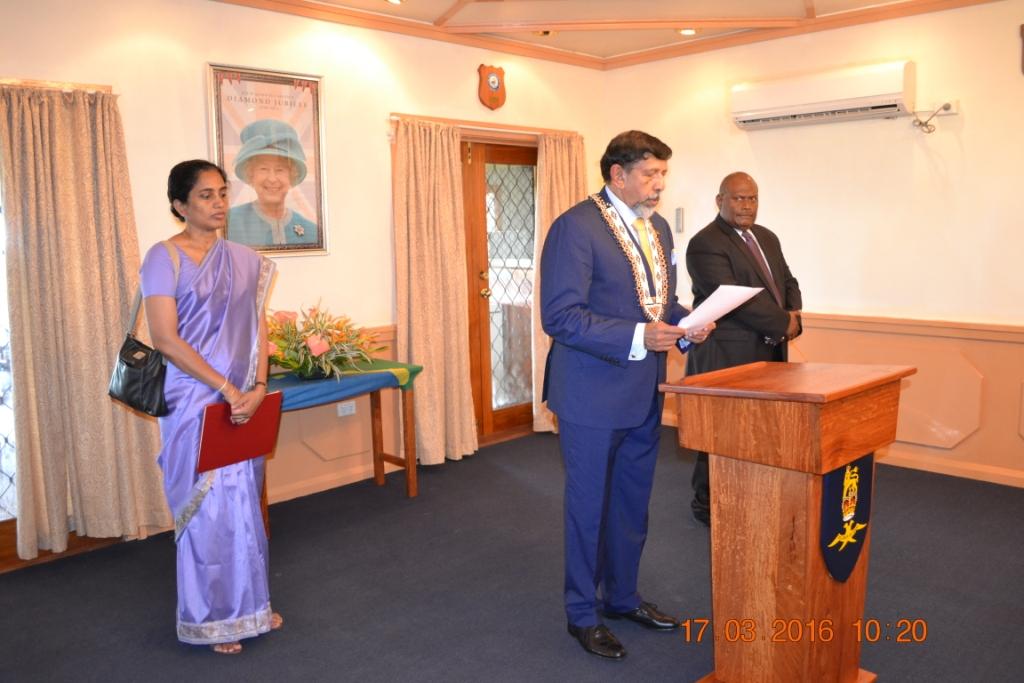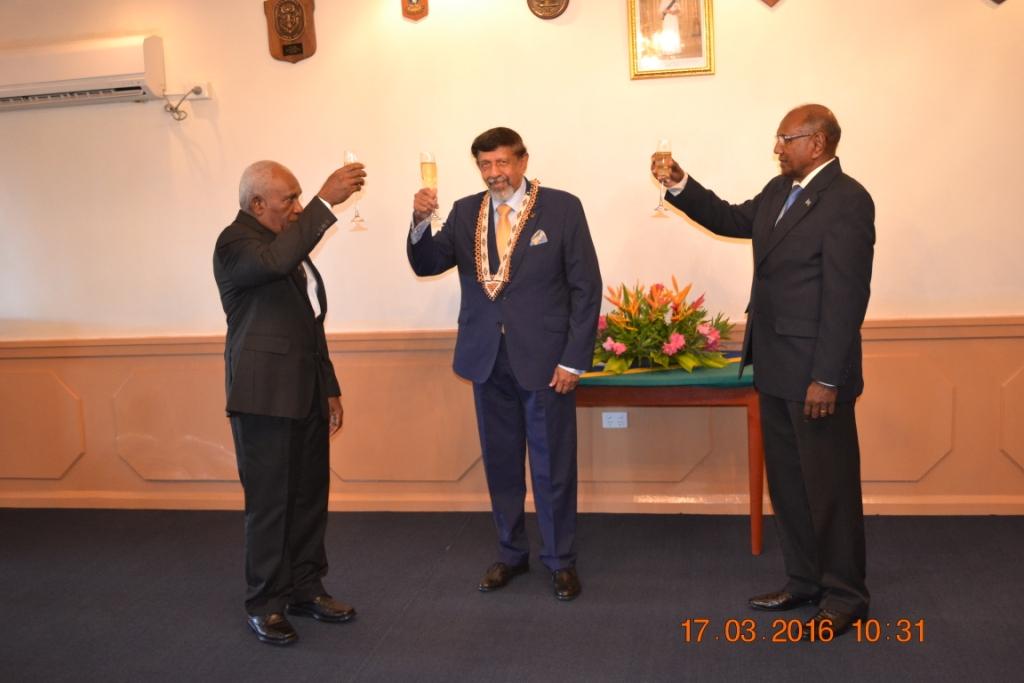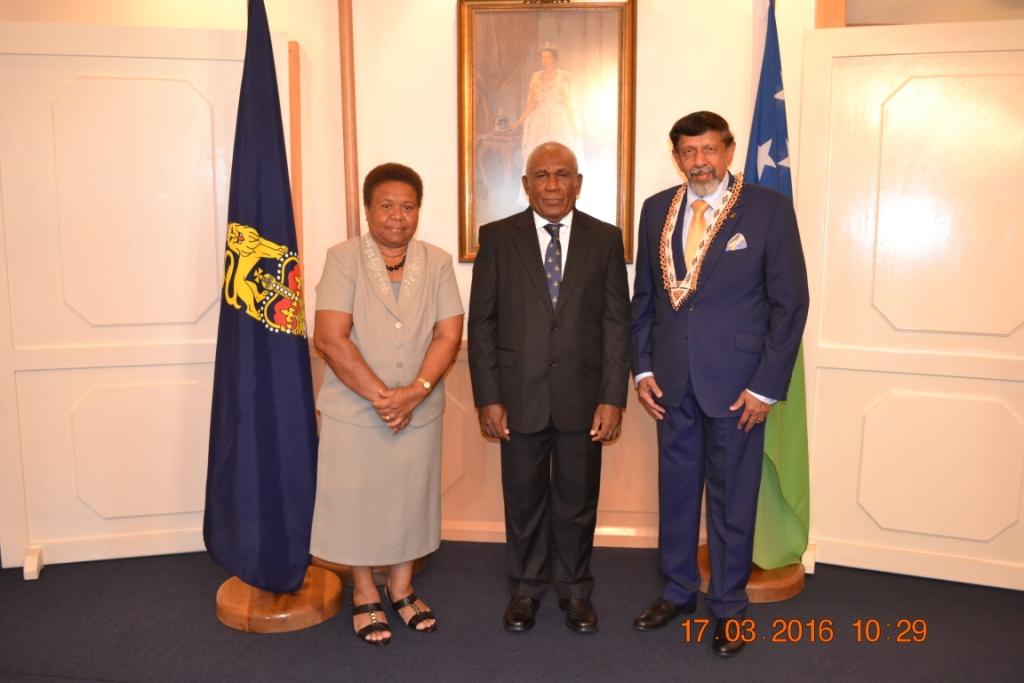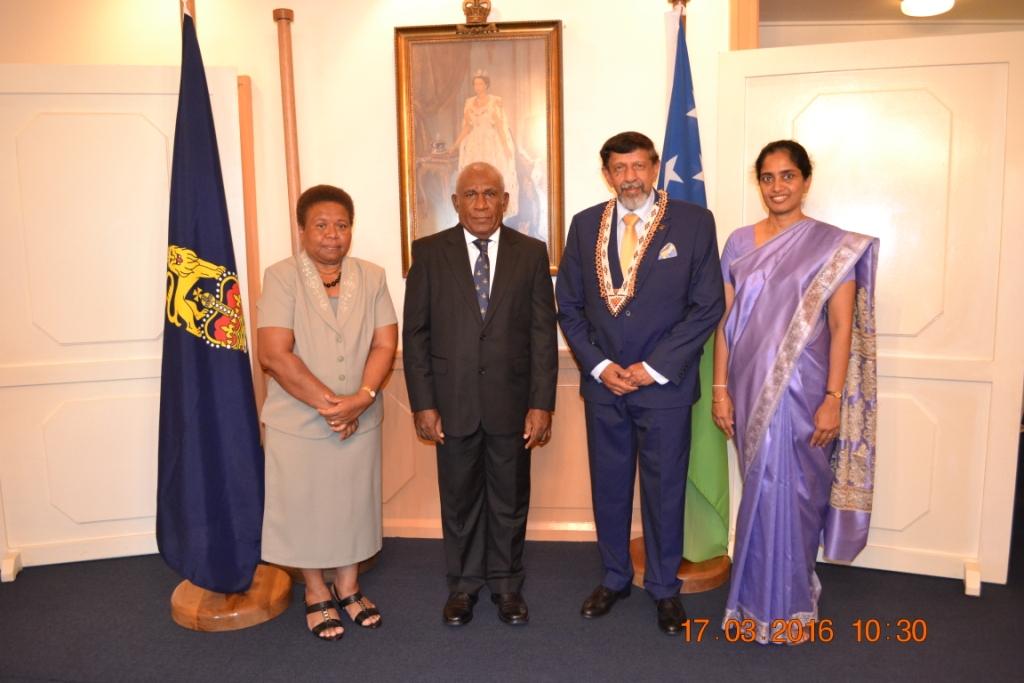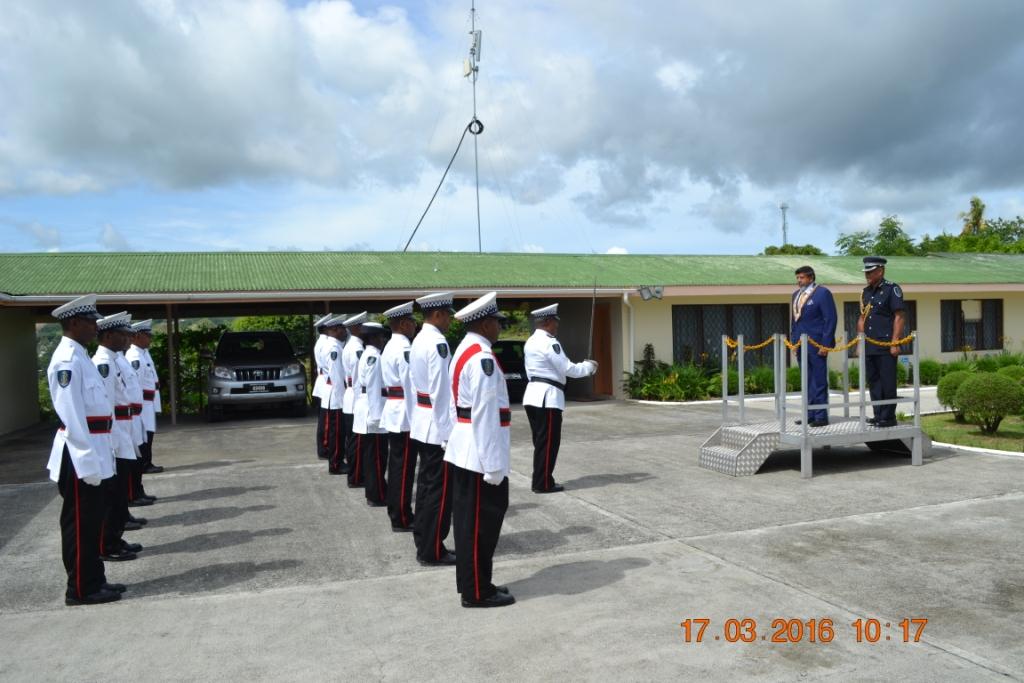


South Asian Diaspora Convention 2016 Panel on Geopolitics of South Asia Singapore, 18 July 2016 Speech by Foreign Minister Mangala Samaraweera MP
July 21, 2016
Following Minister Balakrishnan’s incisive speech and amidst such a distinguished panel, there is little unique insight that I can shed on the geopolitics of South Asia.
But one specific lens I can offer is that of South Asia’s only island state and the South Asian state with the largest per capita diaspora population.
From Sri Lanka’s perspective South Asian geopolitics is closely tied to Indian Ocean geopolitics and is undergirded by an over-arching environment of rising inter-connectivity and inter-dependence.
These two overlapping regions are inextricably linked. K.M. Panikkar, the late Indian diplomat and historian, correctly identified the Indian sub-continent as a quintessential Rimland; that is a region whose fundamental interests and future are tied to their coastlines and the seas beyond.
By using this appellation Panikkar was emphasizing that the Indian Sub-continent, divided from the Asian hinterland by the Himalayas, is – whether it likes it or not – geographically destined to look outward onto the Indian Ocean rather than inward into Tibet or Central Asia. And of course, over centuries and even millennia this fact of nature has resulted in the sub-Continent becoming the central node of trading links, cultural connections and diasporic communities that constitute the web of the Indian Ocean World. As a result, today, there is little doubt that the Indian Ocean is of central, if not pre-eminent, significance to South Asia.
In turn, at this time of global transitional, as the unipolar world order is on the wane with the rise of China and India, the Indian Ocean is quickly becoming a theater of global geopolitical interest and potential rivalry.
As such, it would be a great and ironical tragedy if Asia’s hard won independence, economic development and rising living standards led to conflict and violence rather than peace and stability. Therefore, it is our collective responsibility to identify and implement ways and means of ensuring that Asia’s rise creates the conditions for regional and global stability as opposed to chaos.
Such thought and action is of principal importance during this period of flux when the old order is being cast aside but the new order has yet to emerge. This period of strategic opportunity brings with it the prospect of putting in place the framework of values, principles, norms, conventions and institutions necessary for peace well before the mortar had dried on a faulty foundation.
This responsibility is made all the more acute as it is the first time that we Asians will be key players in determining the architecture of our regional maritime order which has been controlled by external powers more or less since Alfonso of Alberquerque made the Indian Ocean a Portuguese lake in the early 16thCentury.
We in Sri Lanka have learnt our lessons the hard way. After years of violent conflict, which has created such a large, diverse and vibrant Sri Lankan diasporic community across the globe, we know that creating rules developed by legitimate, representative and inclusive institutions and imbued with universal values is essential for peace and stability.
I don’t think it would be naïve to say, that like in Sri Lanka, in a very fundamental sense, parties with an interest in the Indian Ocean have a greater convergence of interests than divergence. Interdependence between economies and peoples is at historically unprecedented highs, there is growing understanding that trade is imperative for development and there is little appetite for risking an optimistic future to conflict and instability.
In addition, there are also very specific instances were interests converge, for example both India and China have a shared concern with keeping the Hormuz and Red Sea choke-points open to free maritime passage.
In this context of macro-convergence and limited mciro-convergence a framework for regulating power in the Indian Ocean and beyond is required. Of course, such a framework must be flexible enough to respond to strategic changes, for example if unexpectedly fast Indian growth shifts the regional balance of power, but it must also effectively constrain, channel and process the exercise of power.
First, such a framework will need to maintain and uphold the rules-based international order and the principles that undergird them. It is this very order that has so successfully prevented a global conflict since the Second World War, provided a sense of security for millions of people living in small states such as mine and perhaps most importantly providing the bedrock for our unprecedented collective economic prosperity.
Preserving the sovereignty of states, including their sovereign right to pool sovereignty and share it, must naturally be a cornerstone of this framework for peaceful development. And in the context of the Indian Ocean ensuring peaceful development requires a stable maritime environment including the freedom of navigation and unimpeded commerce in accordance with international law. Naturally, the UN Convention of the Law of the Sea, which was significantly shaped by Sri Lankans such as Shirley Amerasinghe, is an integral component of this framework. But there are many other global commons and areas of connectivity, such as the environment, where rules-based systems at the global and regional level will become ever more necessary.
Great care must be taken to ensure that rules are perceived to be legitimate and institutions that create and enforce them are inclusive and representative. They must be accepted by all the major stakeholders, by the haves and the have-nots and they must be have the consent of both the strong and the weak. Whether we like it or not, global and regional bodies need to take into consideration balances of power – whether economic or otherwise. Failure to do so will lead to parallel, competing bodies or norms and ultimately lead to institutional instability and stress on the norms and rules that have served us so well.
Such a framework is unlikely to amount to much without a set of common values. One useful starting point for the development of common values for the Indian Ocean region and beyond is the Five Principles of Peaceful Coexistence outlined at the Colombo Powers Conference over half a century ago. The values underlying these principles can provide a starting point for updating and expanding the Five Principles to reflect the realities of an increasingly inter-connected, inter-dependent and complex world where the concept of Westphalian sovereignty is increasing outdated and irrelevant.
This brings me to my second point, interdependence. Perhaps more than any conscious design, the effects of technological innovation and globalization have helped avert conflict. We need to continue to build inter-dependence into our regional and global frameworks. Increasing economic interdependence between East Asia and South Asia – both through bilateral and ‘mega’ trade deals like the Regional Comprehensive Economic Partnership- can play an important role in strategically stabilizing the region. Improved sea, air and land connectivity through smarter regulation and greater investment in connectivity could also be an important catalyst. In this context, the Maritime Silk Road, Indo-Pacific Economic Corridor and other initiatives are very welcome, especially if they can provide a transparent, rules-based, inclusive, institutionalized and principled means of facilitating cooperative development.
Allow me to conclude by noting that building understanding and confidence is a tremendous task that will require great courage, political will and perseverance. But we have a useful example in the region in the form of ASEAN. Both South Asian and East Asian countries have a great deal to learn from this example as we navigate the transitions in the short, medium and long terms. And just as Singapore has over the years helped stakeholders come together and work towards their common interests in South-East Asia, Sri Lanka, the Gateway to South Asia, which is also fast becoming the hub of the Indian Ocean and who maintains excellent relations with all relevant stakeholders, too will play a constructive role in promoting dialogue and cooperation for peaceful development in the region.
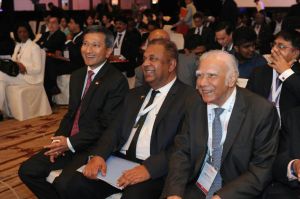
Foreign Minister Mangala Samaraweera seated between Singapore’s Foreign Minister, Dr. Vivian Balakrishnan, and Ambassador-at-Large and Chairman of the Institute for South Asian Studies, Gopinath Pillai.
Opportunities of Convergence Speech at the South Asian Diaspora Convention by Hon. Ranil Wickremesinghe Prime Minister of Sri Lanka
July 20, 2016
Opportunities of Convergence Speech at the South Asian Diaspora Convention
by Hon. Ranil Wickremesinghe, Prime Minister of Sri Lanka
On Monday 18th July 2016, in Singapore
Mr Tharman Shanmugaratnam, Deputy Prime Minister and Coordinating Minister for Economic and Social Policies, Singapore, Ambassador Gopinath Pillai, Chairman, Institute of South Asian Studies, National University of Singapore, Distinguished delegates and Friends.
***********
Let me thank you at the outset for inviting me to this, the third South Asia Diaspora Convention, hosted by the Institute of South Asian Studies in Singapore. This event underscores the strategic position to which Singapore has evolved in the last 51 years as a key intersection between the East and the West. That we South Asians are congregating for this event in a South-East Asian nation is testimony to Singapore’s vision and skill in hosting these events.
• South Asian relations with this region go a long way back. The ancient historical chronicle, records that our people first came to Swarnabhumi 25 centuries ago. They were adventurers, sailors, traders, emissaries of Emperor Ashoka, astrologers, priests, and the like.
The best known is Kaundinya, an Indian Brahmin, who founded the kingdom of Funan. This kingdom was connected to the ancient Pallava Kingdom of South India. For centuries, the alliance between the Pallavas and the Sri Lankan Kingdoms dominated shipping in the Bay of Bengal. South Asia was the pinnacle of progress in the ancient world.
2.
• Today, with a population of 1.7 Billion and an impressive growth rate that the World Bank calls the highest in the world, South Asia is very much the place to be in. Supported by low oil prices and high domestic demand, growth rates are currently high in South Asia. However there are limitations to domestic-based growth, especially for smaller South Asian economies.
South Asian Businesses need to respond to the new de-regulation sweeping global trade, taxation, financial management and business. In order to sustain medium and long-term growth, South Asia Governments must focus on further opening the national economies and promoting foreign trade and investments. This requires a structured and consistent reform agenda, macro-economic stability, free trade, decreasing deficits, improving the ease of doing business and an increase in public infrastructure investment across the region from 3.5 % of GDP to 7.5 %.
********
3.
• My country Sri Lanka which has been ranked the highest in economic freedom in the region by the Heritage Foundation, which has been pioneering economic liberalization in South Asia.
Yet today, in Sri Lanka we are also forging a fresh political initiative – a politics of convergence to consolidate democracy.
• In 2015, the people of Sri Lanka voted twice for a national unity government that assured the country prosperity and stability, eschewing myopic political and economic policies that lacked long term focus. On January 8th last year, the voters elected Maithripala Sirisena as President to execute this mandate. This was further strengthened in August after the Parliamentary elections when we formed a National Government consisting of the two main political parties. The national government, has resulted in political stability and a bi-partisan agreement to formulate consistent and stable economic policies. This, in turn, has set in motion long overdue smart, and sustainable economic reforms to harness the country’s tremendous potential.
These include:
• Reducing the budget deficits from 5.4% of the GDP this year to 3.5% by 2020.
• Introducing a new Foreign Exchange Act – to remove restrictions on current accounts.
• Reforming the tax law to favour simplicity and cut red tape for business enterprises thereby offering a better environment for business.
• A new set of incentives for investments is being formulated in consultation with the IMF and the World Bank.
• The sale of non-strategic ventures such as The Colombo Hilton, Lanka Hospitals, the Hyatt Regency Hotel – amongst others – will herald investment opportunities. SriLankan Airlines with its diverse network of routes is a mature airline and is up for investment collaboration.
• With 13 years of compulsory education, Sri Lanka has scored high in the Human Development Index in the region for two decades. The regional average for youth literacy was 83% but Sri Lanka’s is over 98% as confirmed by World Bank.
• We recognize that poor infrastructure, obsolete policies and unfavorable business environments constrain the ability to do business across borders and act as a drag on competitiveness in South Asia.
In response, Sri Lanka has launched an ambitious program of physical infrastructure development to overhaul the sea, air, road transportations, the energy sector and telecommunications so as to form the backbone of the country. These efforts are intended to support government initiatives to develop Sri Lanka as a regional hub in finance, logistics and business.
4. Allow me to highlight our key sectors of interest.
Manufacturing and Service
• The policies for the manufacturing and the service sectors will be based on Sri Lanka becoming a platform for comprehensive value addition and joining the Global Value Chain. We will focus on the industrial internet of things amongst new business models, innovations, skills development for the job market, the provision of industrial infrastructure and the promotion of private investments.
Digital Economy
• Sri Lanka is ranked among the Top 50 Global Outsourcing destinations by AT Kearney, while Colombo is ranked among the Top 20 Emerging Cities by Global Services Magazine.
• Our new policies seek to improve the network infrastructure the skills shortage and the digital divide across ICT services in terms of computer literacy so as to ensure that ICT4ALL is available in all parts of the country.
Tourism
• Sri Lanka’s potential for Tourism has not been fully utilized. A new programme will include infrastructure for high value tourism and the further development of the hill country, the opening of the Eastern beaches and offshore projects such as yachting and cruises – stretching from the uninhabited small islands in the North to the historic Galle City in the South.
Infrastructure
• The government has launched a large scale economic and infrastructure project – the Kandy – Colombo – Hambantota Corridor that will reshape the country’s urban landscape with two airports and two sea ports. This corridor will amalgamate five separate projects.
1) The Kandy Mega Development Project, 2) the Wayamba (North-Western) Industrial and Tourist Development Project, 3) the Western Megapolis, 4) the Southern Tourist and Industrial Project and 5) the Hambantota Economic Development Project – to be implemented over 15 years.
The US $ 40 Billion Western Megapolis project aims to develop the Western Province as a Megapolis with metropolitan areas on a global scale. The Western Megapolis which will have an estimated population of 8.5 million by 2025 will establish Colombo as a business and financial hub to attract foreign investors to set up operations in Sri Lanka. The Colombo Port will be modernized with up-to-date infrastructure to accommodate Triple E-Class mega ships. The Katunayake International Airport will be further expanded. It will include a Logistics corridor, Industrial clusters, a Science and a Technology City and the Financial City Project involving the reclamation of 269 hectares of land from the sea, will also be in this area.
• The proposed Financial City is ideal to fill the vacuum for a financial city along the trading route between the cities of Singapore and Dubai. The financial city will function as a special jurisdiction area with its own economic and commercial laws to facilitate operations of global multinational corporations and grow as a business and financial hub.
• The US $ 10 Billion Hambantota Economic Project, located in southern Sri Lanka, will invite investments to build oil refineries, power generation plant and industrial zones. We have already started discussions with a number of Chinese Investors.
• Other initiatives are focusing on providing logistics support through better road connectivity. Indeed, expressways connecting the Western and Southern Provinces of the country will play a pivotal role in cross-border connectivity linking Sri Lanka’s two principal seaports.
• A third Port Development is planned for Trincomalee in the East Coast. The Sri Lanka Government has entered into agreements with Surbana Jurong Private Limited to prepare the master plan for Trincomalee based on shipping, manufacturing and tourism. The area of 175 km to the South of Trincomalee will also be developed as high-end tourist resorts.
Trade
• We recognize that small domestic markets are insufficient to sustain growth – therefore a shift to greater export orientation is required to achieve a growth of 8%. Hence, our trade policies will focus on gaining access markets for Sri Lankan exports.
• We have already made the application to the European Union to regain the GSP+ facility for tariff relief. This facility will give Sri Lanka competitive edge in accessing the single European Market. We are hopeful of negotiating this agreement by 2017, which will be a tremendous boost for Sri Lankan manufacturing, services and agricultural products.
• We are also negotiating a Free Trade Agreement with China under the One Belt-One Road initiative. This is necessary in order to make a success of the Chinese investment in the Hambantota Economic Project and the proposed Financial City.
• In addition, Sri Lanka’s long standing economic cooperation with Japan will help us to further modernize our economy. These include planning the Kandy Mega Development Project as well as the Science and Technology cooperation.
5.
• We are cognizant that the economic asymmetry between Sri Lanka and India is going to increase in the future as the latter emerges as a major global player in an increasingly multi-polar world.
The India-Sri Lanka FTA between the two countries will be further expanded and deepened to go beyond trading goods to cover trade in services, investments and technology cooperation. The proposed ETCA will also remove all barriers to trade. We expect the ETCA to be signed by the end of this year.
• The complementary economic developments in South India and Sri Lanka will be enhanced by ETCA, which will provide an impetus to the existing synergies.
As you are aware, South India is home to six key ports in India – the Chennai port and Tuticorin Port in Tamil Nadu, the Visakhapatnam Port in Andra, the New Mangalore Port in Karnataka, the Cochin Port in Kerala.
A significant share of Sri Lankan exports enter into India through ports such as Chennai located in Southern India and a significant share of the cargo are transshipped to ports located in the Southern India. The ETCA will provide the opportunity to strengthen cooperation between the two-port system – paving the way for an inter-related and integrated port system between the two countries. With the proximate location of industrial zones and logistic and financial services along this strategic maritime corridor, Sri Lanka and South India provides attractive investment opportunities for a range of activities in industry, information technology and tourism.
• India’s five southern states – Karnataka, Andhra Pradesh, Tamil Nadu, Kerala and Telegana have a population of 250 million people and a combined GDP of nearly US$ 450 billion. With the addition of Sri Lanka US$ 80 billion GDP this sub-region will have a US$ 500 billion economy. The ETCA has the potential to promote a rapid growth of the US$ 500 Billion sub regional economy.
• Finally we are also negotiating a Free Trade Agreement (FTA) with Singapore. As you know Singapore has a Comprehensive Economic Partnership Agreement (CEPA) with India.
***********
• On the one hand, Sri Lanka’s close proximity to the fast-growing South Indian states offers a strategic economic advantage to the country.
On the other, the sub-region (especially India) also stands to benefit immensely from Sri Lanka’s uniquely positioned geo-strategic advantage – its location at the crossroads of major shipping routes connecting South Asia, the Far East and the Pacific with Europe and the Americas.
Maximizing on these factors will transform Sri Lanka into a geo-economic center of South Asia, dynamically and synergically engaged with the rest of region.
By next year the Singapore-India (CEPA), the Indo-Lanka ETCA and the Sri Lanka-Singapore FTA will enable the southern sub region of South Asia and Singapore to establish a tripartite arrangement for trade and investments.
Such a bold agreement posses the potential to enhance economic cooperation between our three countries that will also have a positive impact on the Bay of Bengal trade. At the other end, Singapore too will expand its importance and capacity for business networking in the region.
It is a vision of convergence that is inextricably interwoven with the future of South Asia as a whole. It is up to us then to be imaginative and bold in providing the political leadership to maximize on the potentials and opportunities of such a convergence.
Statement by Hon. Mangala Samaraweera, MP Minister of Foreign Affairs of Sri Lanka -32nd Session of the UN Human Rights Council Geneva, 29 June 2016
June 30, 2016
Mr. President
High Commissioner for Human Rights
Excellencies
Distinguished delegates
At the 30th Session of this Council last October, Sri Lanka, by co-sponsoring the Resolution 30/1, ‘Promoting Reconciliation and Accountability in Sri Lanka’, broke away from the years of disengagement, self-isolation, and confrontation that preceded the election of President Maithripala Sirisena in January 2015.
Sri Lanka, hailed at Independence in 1948 as a potential “Switzerland of the east”, was now ready to come to terms with the many tragedies we have had to face as a nation in the past, and move forward as a brave new country in order to harness the peace and prosperity that our people truly deserve.
President Sirisena, in his Address to the Nation on the 68th Independence Day anniversary on 4th February this year, reiterated his commitment to fulfil the provisions of Resolution 30/1, in working out the contours of a new Sri Lanka.
He said that Sri Lanka is committed to implement the Resolution to protect the dignity of our State, our People and our Security Forces and that we will implement the proposals with patience, discipline and restraint. It will be freedom, democracy and reconciliation that will be reinforced by implementing the provisions of the resolution.
When Sri Lanka’s unity Government marks its first year in office in August this year, there will be many achievements to look back on, with a certain sense of satisfaction.
While consolidating many of the democratic changes achieved within the first 100 days, we have begun taking action on all fronts related to strengthening good governance and the rule of law; promoting and protecting human rights; fostering reconciliation; and achieving economic development; while engaging and working closely with the international community in a constructive manner that benefits the people of our country:
-In order to ensure that the setting up of the reconciliation mechanisms is done effectively, a Secretariat for Coordinating the Reconciliation Mechanisms has been set up under the Office of the Prime Minister;
The Government recognises that, in order for the transitional justice process to be effective in achieving the desired objectives, the necessary mechanisms should be properly sequenced, integrated and coordinated. Some have started raising alarm bells that sequencing of mechanisms is a delay tactic or means to omit the component of justice. This is incorrect. The Secretariat for Coordinating Reconciliation Mechanisms is already consulting experts and is working on obtaining the required training and capacity-building for the relevant mechanisms – investigating techniques, forensic expertise, prosecutorial strategies – so that when the designs are in place, following the Consultation Process, the required expertise for the mechanisms will also be in place;
-A Task Force consisting entirely of civil society representatives has been appointed to seek the views of the public that will inform the designing of the truth-seeking, justice, accountability and reparations mechanisms;
-The task of working on the wider issues of reconciliation aimed at achieving non-recurrence is being coordinated by the Office of National Unity and Reconciliation which comes under the purview of the President, and is led by former President Chandrika Bandaranaike Kumaratunga;
-The draft Bill approved by Cabinet to establish a Permanent and Independent Office on Missing Persons, which is an essential component of the truth-seeking process and the first mechanism in the transitional justice programme, has already been gazetted and included in the order paper of Parliament. This, to us, is a milestone in Sri Lanka’s reconciliation process;
-A Bill to amend the Registration of Deaths (Temporary Provisions) Act No 19 of 2010 to enable the issuance of Certificates of Absence in respect of Missing Persons was approved by Cabinet and gazetted earlier this month. This too will be tabled in Parliament to be taken up in July;
-The International Convention for the Protection of All Persons from Enforced Disappearance was ratified and the draft legislation to give effect to the provisions of the Convention will be presented to the Cabinet in July, for gazetting and presentation to Parliament;
-A ‘National Policy on Durable Solutions for Conflict Affected Displacement’ has been evolved through wide consultations, and with technical support from the UN. The Policy is presently before Cabinet for approval, and has been released to the public as well;
-A Committee is now putting the final touches to the first draft of the new counter-terrorism legislation that will replace the much criticised and much abused Prevention of Terrorism Act, in keeping with Sri Lanka’s commitment and obligations to human rights and countering terrorism. Technical assistance for this purpose has been sought from the UN Counter-terrorism Committee Executive Directorate;
-Despite the Government maintaining a zero tolerance policy on torture, its incidence has not ceased, although reduced. We are seized of the seriousness of the issue and have also sought the assistance of the National Human Rights and Police Commissions in Sri Lanka to create greater public awareness and initiate the necessary public discourse required, in addition to training programmes for the Police and other measures aimed at combating and eliminating torture including addressing the need for prosecution and conviction;
-A Cabinet approved Inter-Ministerial Committee has been tasked with drafting the National Human Rights Action Plan for 2017-2021;
-Last week the military released another 701 acres of land to the District Secretary of Jaffna, out of which, 201.3 acres were handed over to their original owners on 25th June. The Government has clearly instructed the military that all the land obtained from civilians must be released latest by 2018, and that the owners of whatever land that may be required for national installations or development purposes would be fully compensated.
-The three principle pillars on which the architecture of the new Sri Lanka is built, are democracy, development and reconciliation. The Government is also working towards a new Constitution for Sri Lanka. This Constitution, while entrenching the democratic gains we have achieved during the last year, will also be a celebration of Sri Lanka’s diversity as a multi-ethnic, multi-religious, multi-lingual country that will guarantee equal rights, justice and dignity for all, and address some of the issues that have plagued us since Independence and has stood in the way of our unity as a nation. The Public Representations Committee tasked with seeking the views of the public for the new Constitution has just completed its work, and their Report has been handed over to the Government;
-Sri Lanka is also now open to the world and engages with the international community with courage and confidence. The Working Group on Enforced or Involuntary Disappearance, the Special Rapporteur on the Independence of Judges and Lawyers and the Special Rapporteur against Torture visited and shared with us their observations, which are being acted upon. The Special Rapporteur on the Promotion of Truth, Justice, Reparations and Guarantees of Non-recurrence visited us thrice in one year, in a technical-advisory capacity. We were also pleased to receive you, High Commissioner, in February; and we are hopeful that Secretary-General Mr. Ban Ki-moon will visit us this year as well.
We invite all who are interested in Sri Lanka’s progress to visit us, including all those who criticise us, fairly or unfairly. We are ready and willing to accept praise as well as criticism in the correct spirit, and use both for reflection and improvement.
One of our weaknesses has been our failure to communicate our strategies and plans, effectively. We are already planning on starting a communication drive to address this essential requirement.
Mr. President,
Reconciliation does not happen at once, overnight. It requires effort, hard work, commitment, and careful, continuous, concrete action. It is not an end that can be reached where no further work is required. It is not a box that can be ticked as achieved. It is a journey that requires constant striving. A commitment towards which our nation should be bound across generations, and a central tenet of governance, because the price to pay if we falter, is not one our nation can endure once again after over thirty years of bloodshed that has spared no one.
I would say that we are following what the ancient Romans would have called, a policy of festina lente – making haste slowly. This may make it seem for some that the progress we are making is too fast, and too slow for others.
What we have achieved so far since January 2015 may seem like ‘baby steps’ for some, but for us they are ‘giant leaps’. Some alleged that we are being optimistic, upbeat and hopeful. I must say that we are. How else do we work towards achieving our objectives? What is important is that our optimism is not based on delusion. It is based on the actual results of what we have managed to achieve so far, and the knowledge that our Government is working on a comprehensive strategy that will enable us to pursue different processes in a coordinated, integrated and appropriately sequenced manner.
While dealing with the low-hanging fruit immediately, we have strategies and plans to deal with the more serious and controversial issue of setting up a judicial mechanism with international assistance. Sri Lanka is no stranger to international assistance and participation with many investigative and forensic experts having worked with us in the past. Of course, there are varying views on the nature, level and role of international participation. Divergent views are indicative of a healthy democracy and consultative process. Despite such divergent views, however, I can assure you that the mechanism that is finally set up will be one which has the confidence of the stakeholders, especially the victims, with fair trial and due process guarantees.
The road ahead is certainly challenging, but it is powered by our determination and resolve to achieve reconciliation. There are some who doubt our sincerity to do so, and also a few who want us to fail. For those of our friends who are genuinely concerned, and want Sri Lanka to succeed, every delayed second seems to appear as an eternity, and they fear that the Government has lost its way and the political will to succeed. Then there are others who are misinformed and misled and therefore, disbelieve or are unaware of the achievements so far. And of course there are those who pray that we won’t succeed. These are the forces of extremism on both sides of the divide, who, in league with the ghosts of the past, wait to rejoice to see Sri Lanka fail to succeed in its journey of reconciliation. For the extremists of course I have nothing to say, but to all the others, I wish to say that the Government is united and firm in its commitment to achieve reconciliation, development and ensure non-recurrence. Let us have the benefit of your doubts in order to take forward this extremely challenging yet essential process for our nation.
As I mentioned before, Sri Lanka is open to the world, and I invite all our friends to come and see what we have done, and assist us in this historic journey.
When I come back here in March next year, the contours of the new Sri Lanka we aspire to build, I believe, will be far clearer.
We appreciate greatly, Mr. President, the role of those who are helping Sri Lanka in this challenging journey in numerous ways – through advice, through technical assistance, through resources and investment. We are also deeply appreciative of the support of the High Commissioner and his Office. We note that the High Commissioner’s Report acknowledges our achievements. We appreciate the observations made which help us reflect, and take action to address areas of concern, and we look forward to continue to work in close cooperation with the international community in our journey towards economic and social progress, reconciliation, and achieving durable peace for our people. I urge all of you to support our journey with patience and perseverance.
Thank you.
Thank you
June 28, 2016
The Sri Lanka High Commission wishes to thank all those who contributed generously to the appeal for relief assistance to the people affected by the recent floods and landslides in Sri Lanka. We are happy to inform that as of 28 June 2016, the High Commission has received over A$ 26,200 in response to the appeal launched in May. This money has been sent to the Government of Sri Lanka to provide medium and long term relief to the affected people.
The High Commission further wishes to inform that a large number of donations were received via online transfer, and we are unable to acknowledge some of them due to non-availability of the donors’ contact details.
Therefore, we kindly request all those who have donated money through the Sri Lanka High Commission but have not received an official receipt, or know someone who has not received a receipt for their donation, to please contact the High Commission at admin@slhcaust.org.
Sri Lanka High Commission in Australia
28 June 2016
Foreign Minister Mangala Samaraweera delivers the Opening Address at the Sixth World Congress Against the Death Penalty
June 23, 2016
Address by Hon. Mangala Samaraweera, Foreign Minister of Sri Lanka
6th World Congress Against the Death Penalty
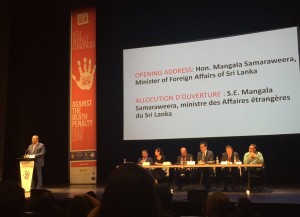
Despite its widespread use, for millennia the death penalty has caused lingering societal discomfort and unease. Fairly early on in history many enlightened leaders have found the death penalty degrading of human dignity. For example, in ancient Sri Lanka a number of kings – influenced by the Buddha’s teaching – abolished the death penalty. In fact, for much of the first, third, fourth and thirteenth centuries the death penalty was not employed in Sri Lanka.
This may help explain why for nearly a century there has been a consensus among the legislative leadership of my country that the death penalty ought to be abolished. This consensus was based both on moral grounds and on the ineffectiveness of the death penalty as a deterrent. As far back as 1928 the Ceylon Legislative Assembly voted 19 to seven in favour of a resolution on abolishing the death penalty, which was moved by D.S. Senanayake, who became the first Prime Minister of Ceylon and founder of the United National Party – one of Sri Lanka’s two main political parties. In the end, abolition was only thwarted by the high-handedness of the colonial authorities of the time.
In 1956, a few years after Independence, my father, then the Parliamentary Secretary for Justice, proposed a bill ending capital punishment which was supported by S.W.R.D. Bandaranaike, the Prime Minister and founder of the Sri Lanka Freedom Party – our island’s other main political party. The bill passed but tragically the death penalty was resumed a few years later as result of Mr. Bandaranaike’s assassination until a de facto moratorium was instituted in 1976.
I daresay that even today the vast majority of my colleagues in Parliament find the death penalty morally repugnant and are aware of its inefficaciousness. However, as they fear the knee-jerk reaction of uninformed public opinion they have proved unwilling to take the courageous step the Government took in 1956. I believe that this fear is true not only of legislators and jurors in Sri Lanka, but of other Asian states where the death penalty is yet to be abolished.
Therefore, the common challenge facing us today is persuading our respective people and perhaps even more importantly having the collective courage to lead by acting.
However, changing public opinion is a time consuming and resource intensive process. And the evidence points out that, despite persistent advocacy, public opinion on the subject of the death penalty is relatively static in many countries. Therefore, overcoming this key challenge requires an act of political courage. Studies have shown that when people are asked to sit in mock judgement, rather than simply answer survey questions, no more than 30 percent of people support the death penalty, even in the most serious of cases. In France, although public opinion was overwhelmingly in favour of the death penalty in 1981, its abolition decided by the then President of France led to a change of public opinion. It is clear that the debate resulting from the process of abolishing the death penalty and the lack of change in crime rates after the death penalty has been abolished allays the public’s fears. As a result there have been very, very few cases of reversal once the death penalty is abolished.
Momentum is slowly building in Asia, where more executions take place than the rest of the world combined. In South-East Asia the number of executions has declined significantly, in South Asia there have been both short and long de facto moratoria. In 2007, twenty four Asian states voted against the UN Resolution on a Death Penalty Moratorium, in 2014 that number had declined to 18. There is further good news: Sri Lanka’s Minister of Justice, who will also be addressing a session at this Conference, has informed Parliament that Sri Lanka will return to its traditional position of voting in favour of this resolution as it did in 2007, 2008 and 2010 and, more importantly, continuing the four decades long de facto moratorium.
Allow me to conclude by saying that abolishing the death penalty requires persuasion and resolve but above all it requires leadership – the collective leadership of legislators, activists, editors, academics and jurors. As momentum towards critical mass develops, I am confident that the coming years will see the death of the death penalty in our region.
22 June 2016
Oslo
Food fair organised by the Sri Vishnu Shiva Mandir of Canberra for flood and landslide victims in Sri Lanka
June 22, 2016
Sri Vishnu Shiva Mandir of Canberra organised a vegetarian food fair on Sunday 19th June, the day of Poson Full Moon Day, at the Mandir premises.
All proceeds from the food fair amounting to over A$2600, was handed over to Sri Lankan High Commission S. Skandakumar, for the victims of recent floods and landslides in Sri Lanka.
The High Commissioner thanked the Mandir Managing Committee, devotees and volunteers who contributed their time, effort and money towards this worthy community event. Members of the Sri Lankan community and friends from Chennai, Hyderabad, Mumbai and Bangalore had helped out as volunteers to make the event a success.
Given below is an article written by one of the visitors to the Food fair, following the event, which captures the spirit of the event.
“Allow me to begin with a statement pointing out the obvious!
Sunday the 19th of June coincided with the most important events of the Sri Lankan Buddhist calendar; the arrival of Arahath Mahinda and the establishment of Buddha sasana in Sri Lanka 2323 years ago to the compassionate blessing of the Buddha “May all living beings be happy”.
Coincidentally it was on this poson poya day that the Devotees of the VISHNU SHIVA MANDIR of Canberra were compassionately and devotionally engaged in an act of kindness.
I witnessed it in person.
The untiring efforts of the devotees of Shiva engaged from the first hour of dawn, preparing for a carnival of Dravidian food to be sold in a fair. The caption of the the SHIVA temple advertisement read:
I spoke to Srithamo, a prominent organizer of Jaffna Tamil descent, educated at Jaffna Hindu College the second oldest school in our land.
“Healing and taking over the suffering of others with compassion is the most powerful healer. By pouring our tender feelings and loving kindness you can melt away years of darkness, frustration and anger. We are all brother and sisters of Sri Lanka ” said Sri. For certain the Hindu dharma of ‘AHIMSA’ was his call!!
Streams of people trekked in for five long hours, numbering three hundred and over’ in solidarity to the cause. Tamils, Sinhalese, Indians and a host of other communities unitedly contributed to collect over $2,600 towards the flood victims of Sri Lanka. We stand for a united Sri Lanka, irrespective of the language we speak or the religious beliefs we have; be it ‘ Namo Namo Matha” or “Namo namo Thaye”. We venerate mother Lanka.
Let us take this opportunity to Salute the devotees of Shiva Mandir for standing alongside us in solidarity for the unfortunate landslide and flood victims of Lanka. What a befitting gesture for a united Sri Lanka. “The happiness which will arrive from long and endured practices, will lead to the end of suffering; which at first is like poison, but at last like nectar when happiness arises from one’s own mind.” ¬ Ved Vysa ( The Bhagavad Geetha ) 1500 BC”
Restrictions on issuing passports to Sri Lankan Citizens lifted
June 2, 2016
The Government has today, 1 June 2016, issued a circular ending the restrictions placed in March 2011 on the issuance of passports to Sri Lankan citizens resident abroad who, at different times, were compelled to leave Sri Lanka due to conflict or political reasons.
In March 2011, instructions had been issued to all Sri Lanka Missions abroad to refrain from issuing passports to those who had applied and gained refugee status or asylum in another country unless they have renounced their refugee and/or asylum status. These instructions constituted a violation of citizen’s rights and resulted in hardship and difficulty to many Sri Lankans who were forced to leave the country for political reasons and denied a Sri Lankan travel document.
The Government of Sri Lanka is committed to uphold the right of all Sri Lankan citizens to have a passport and ensure their freedom of movement and travel irrespective of their political beliefs, which will now be guaranteed as per the new instructions issued today.
In recent times, there has been increased interest among Sri Lankans living abroad to both visit and invest in Sri Lanka as a result of the good governance and reconciliation efforts of the present Government. Ending the restrictive practice that prevailed previously will further facilitate the ability and opportunity for Sri Lankan citizens overseas to visit the country and also return to Sri Lanka, contributing thereby to the country’s development and reconciliation processes.
Ministry of Foreign Affairs
Colombo
1 June 2016
Vesak celebrations in Canberra
May 23, 2016
The Sri Lanka High Commission in Australia celebrated the Vesak festival on Saturday 21st May with the participation of the Venerable Maha Sangha from the Sri Lanka Buddhist Temple and the Sri Lankan community. The event was also an occasion to encourage donations towards emergency flood relief assistance in Sri Lanka.
The celebrations commenced with a Buddhist sermon and chanting of pirith by the Venerable Maha Sangha who also offered blessings to the people affected by the floods and landslides in Sri Lanka.
The High Commission staff presented Vesak bhakthi gee to the accompaniment of music by the Nada Roo Music Group from Canberra, which was the highlight of the event.
High Commissioner Skandakumar in his welcome address thanked the Maha Sangha for their prayers on behalf of all those who had suffered extensively on account of the recent devastating events in Sri Lanka. He observed that the floods and landslides had affected people from all walks of life and not by caste, creed or ethnicity. He appealed to all to abide by the profound teachings of Lord Buddha, and to come together as the United Sri Lankan Diaspora of Australia to serve our motherland as one. He added that on such an auspicious day there could not be a finer tribute to Lord Buddha’s teachings than our sincere commitment to his pronouncement “Loka Samastah Sukhino Bavantu “-May All Beings Be Happy – reminding those present that we were without exception children of a common Mother Sri Lanka as reflected in our National Anthem.
The High Commissioner concluded by paying a tribute to the Nadaroo Music Group and the Mission Staff for an outstanding rendering of Vesak bhakthi gee and thanked the community for their presence and participation.
The High Commission was colourfully decorated and illuminated with Vesak lanterns and Buddhist flags. A leaflet explaining the significance of Vesak was distributed to those coming to see the decorations throughout the weekend. The Sri Lankan community highly appreciated the beautiful decorations which brought the spirit of Vesak to Canberra and the bhakthi gee presented by the Mission staff.
Sri Lanka High CommissionCanberra, Australia. 23rd May 2016




















Learned Judges visit Canberra Mission
April 12, 2016
A distinguished delegation of Supreme Court and Appeal Court judges from Sri Lanka was entertained to dinner at the High Commission on 10th April.
In extending a warm welcome to the guests, the High Commissioner observed that never in the history of the Mission had such a high level of legal intellect come through its doors in such a short space of time.
He reflected on the achievements of the Sri Lankan community who made Australia their home as being a source of pride to all. He also observed that each of them had been able to realise his or her potential due to the even playing field that Australia has provided for all its citizens in an equitable manner. The benefit of that was seen in the robust nature of the Australian economy in a harmonious environment that embraced the diverse cultures, religions and ethnicities of almost 200 countries.
President’s Counsel Justice Priyasath Dep speaking on behalf of the eleven member delegation thanked the High Commissioner for his kind invitation and said that they were delighted to be at such a well-designed Mission. He said that they had been associated with a very interesting programme with the School of Law of the Deakin University and will be carrying a message of goodwill from Australia on their return.
The High Commissioner was associated with the Deputy High Commissioner Himalee Arunatilaka, Minister Cyril Gunapala and Minister Counsellor Chandana Weerasena
Professor Sadeep Gopalan, Dean of the Deakin University School of Law and Mr. Athula Pathinayake from the Deakin University School of Law accompanied the delegation
High Commissioner of Sri Lanka Presents credentials in Solomon Islands
April 11, 2016
High Commissioner Somasundaram Skandakumar presented credentials to the Governor General of Solomon Islands Sir Frank Ofagioro Kabui in Honiara on 17th March 2016. The High Commissioner was welcomed with the traditional garlanding of shell money and a Guard of Honour at the Governor General’s House. Speaking at the occasion, High Commissioner Skandakumar said that as island nations Sri Lanka and Solomon Islands share common interests and concerns, which can be focussed in furthering bilateral relations. The High Commissioner briefed on the new political direction of the Government in Sri Lanka, which aims at fostering reconciliation, democratic values and economic development.
The Governor General appreciated the initiatives of the Sri Lankan Government and highlighted the need to build on the bilateral relations, which were established in 2013, for mutual benefit. Referring to the legal and commercial fields as potential areas for cooperation the Governor General recalled with fond memories six months spent in Sri Lanka in 1976 under a Commonwealth training programme.
The High Commissioner called on Prime Minister Manasseh Sogavare and Foreign Minister Milner Tozaka during the visit, and was hosted to lunch by the Permanent Secretary to the Ministry of Foreign Affairs and External Trade Joseph Maahanua. He also interacted with the small but influential Sri Lankan community in Honiara.
Sri Lanka High Commission
Canberra
11th April 2016
Register with the High Commission
The Sri Lankan High Commission in Canberra would like to keep in touch with Sri Lankans and persons of Sri Lankan origin living in Australia, New Zealand, Fiji, Papua New Guinea, Vanuatu and other Pacific Islands as well as Sri Lankan community organisations in those countries.
If you are a current/former Sri Lankan or an office bearer of a Sri Lankan community organisation we invite you to register with the High Commission.
RegisterAddress
Sri Lanka High Commission
61, Hampton Circuit
Yarralumla
ACT 2600

